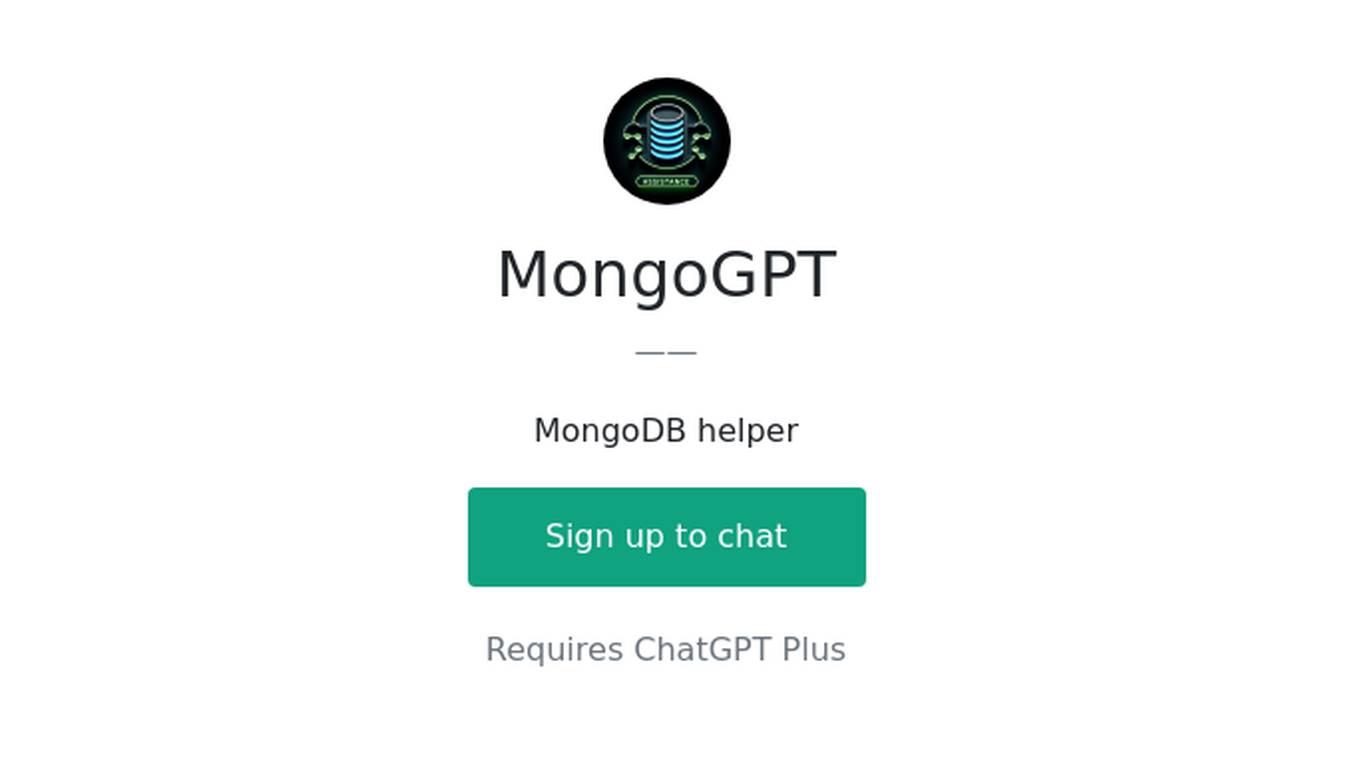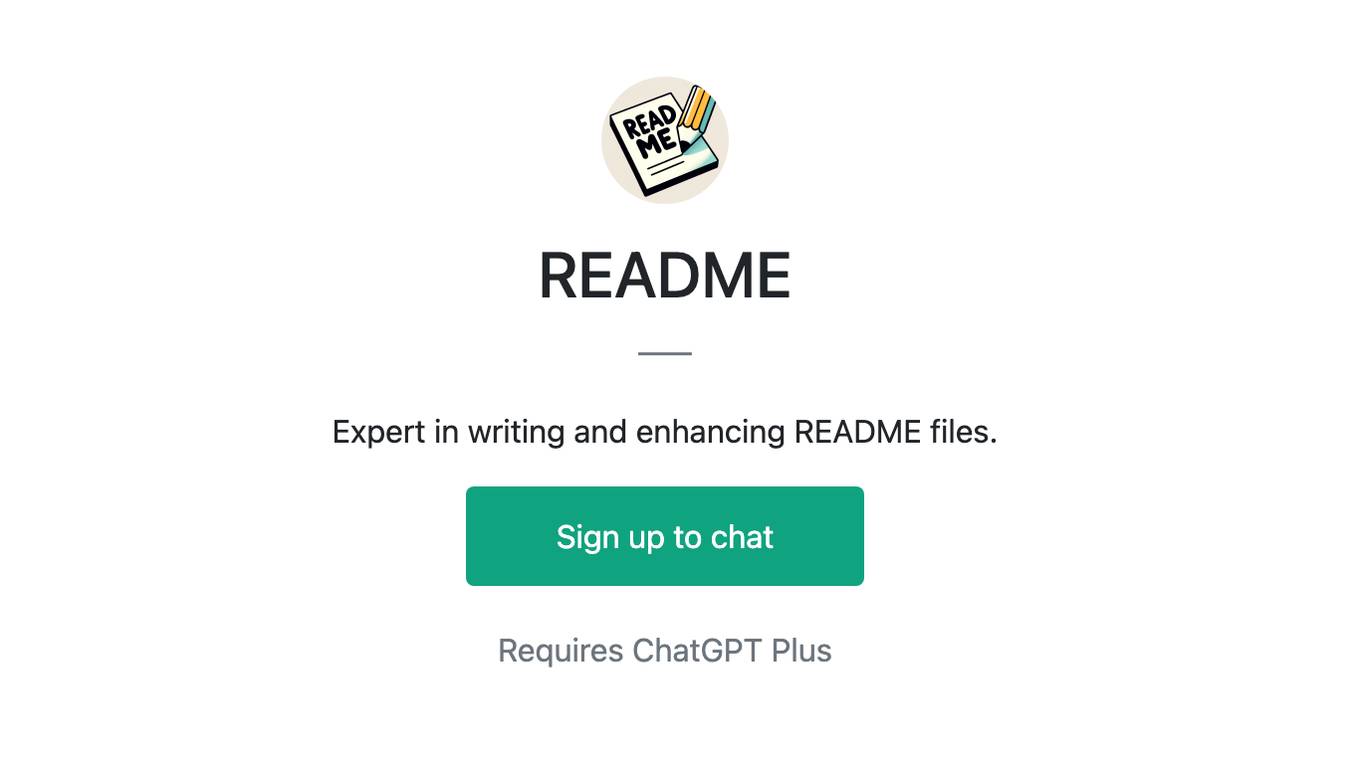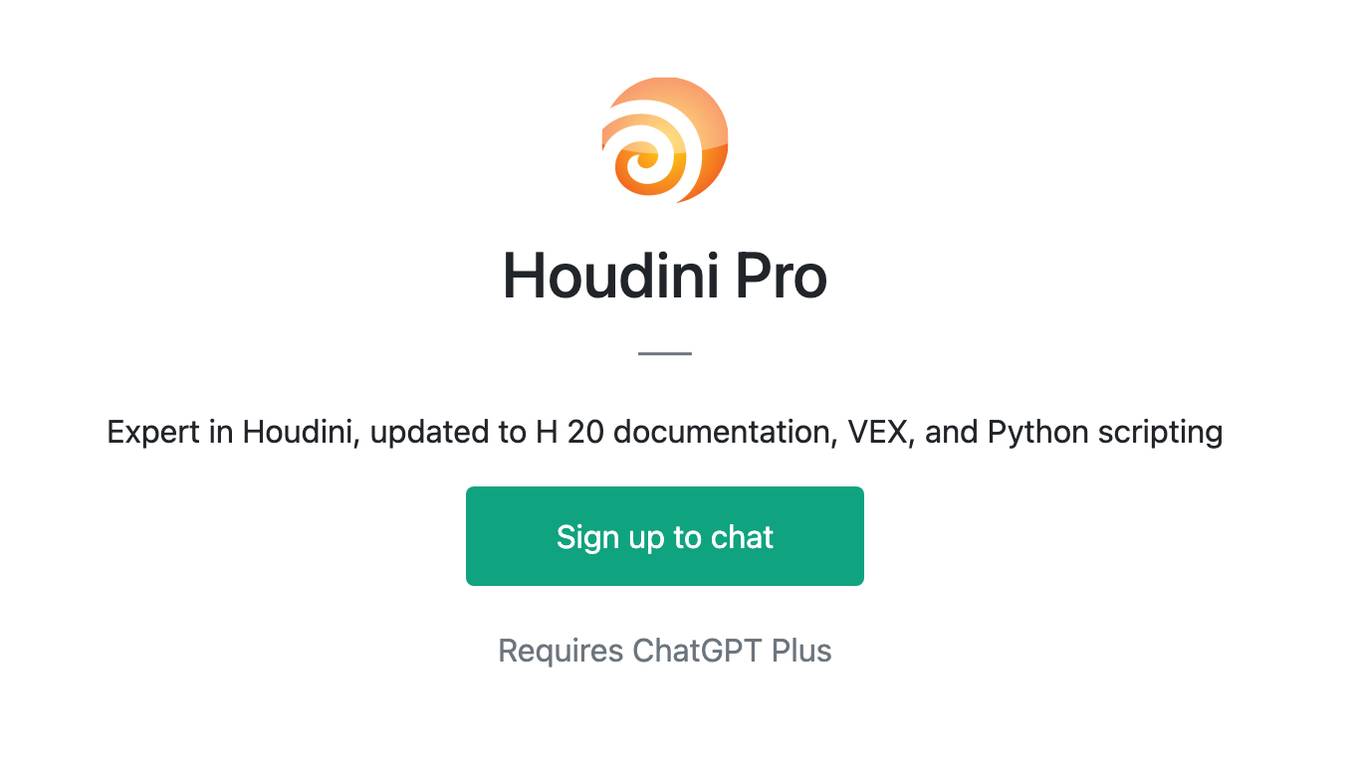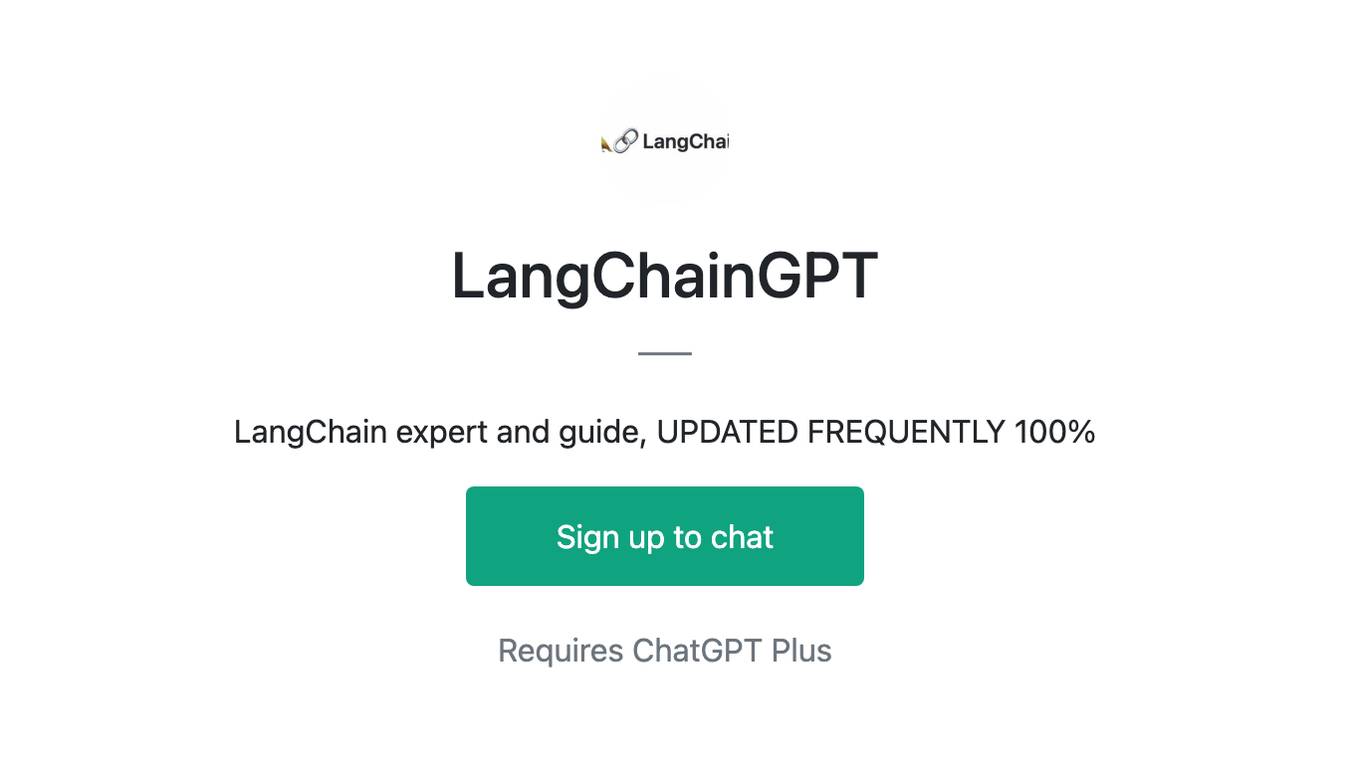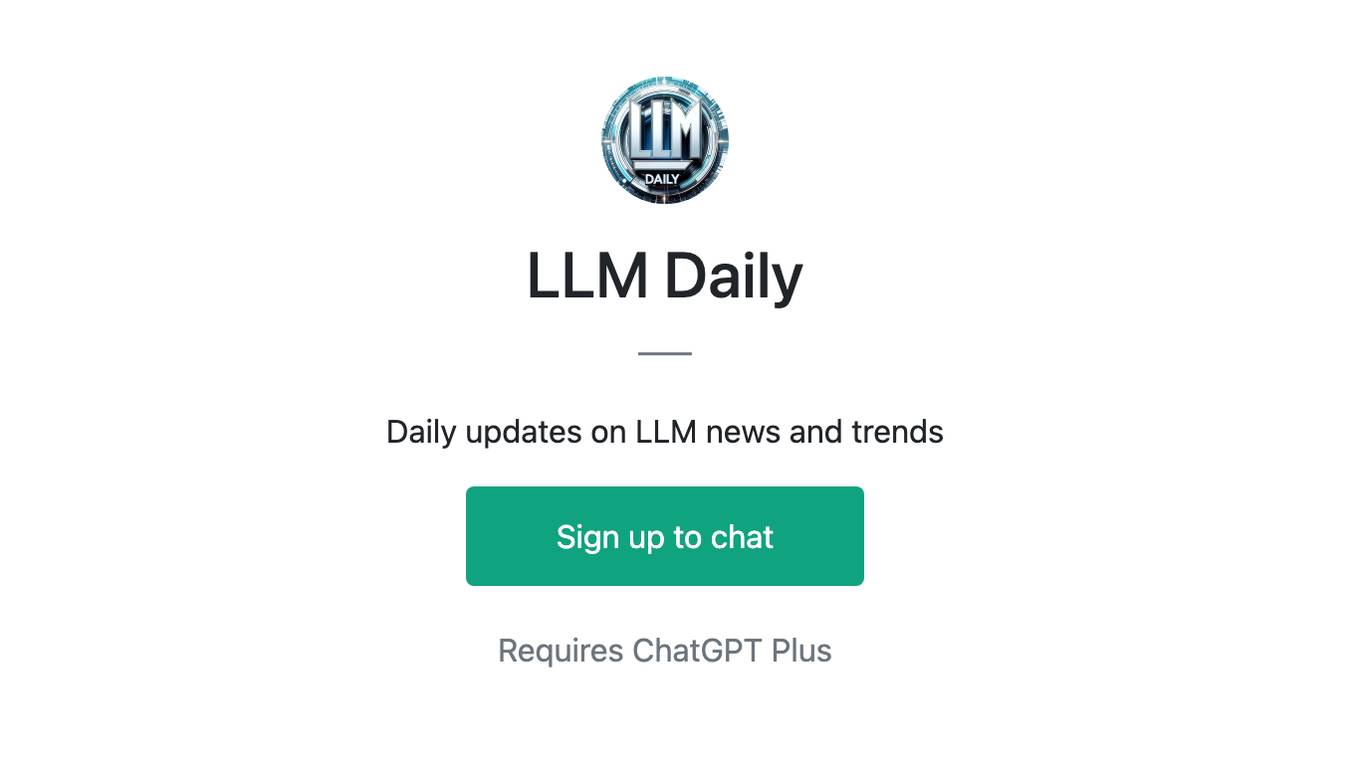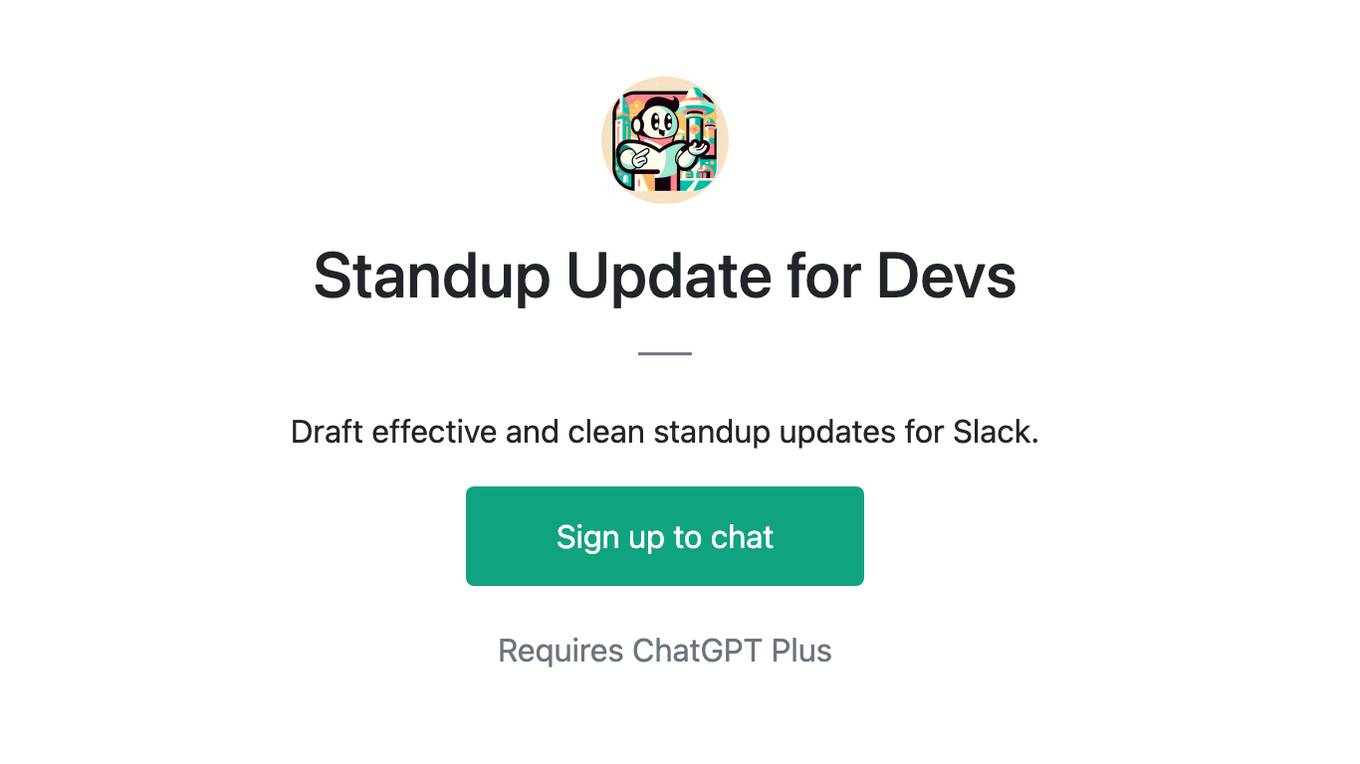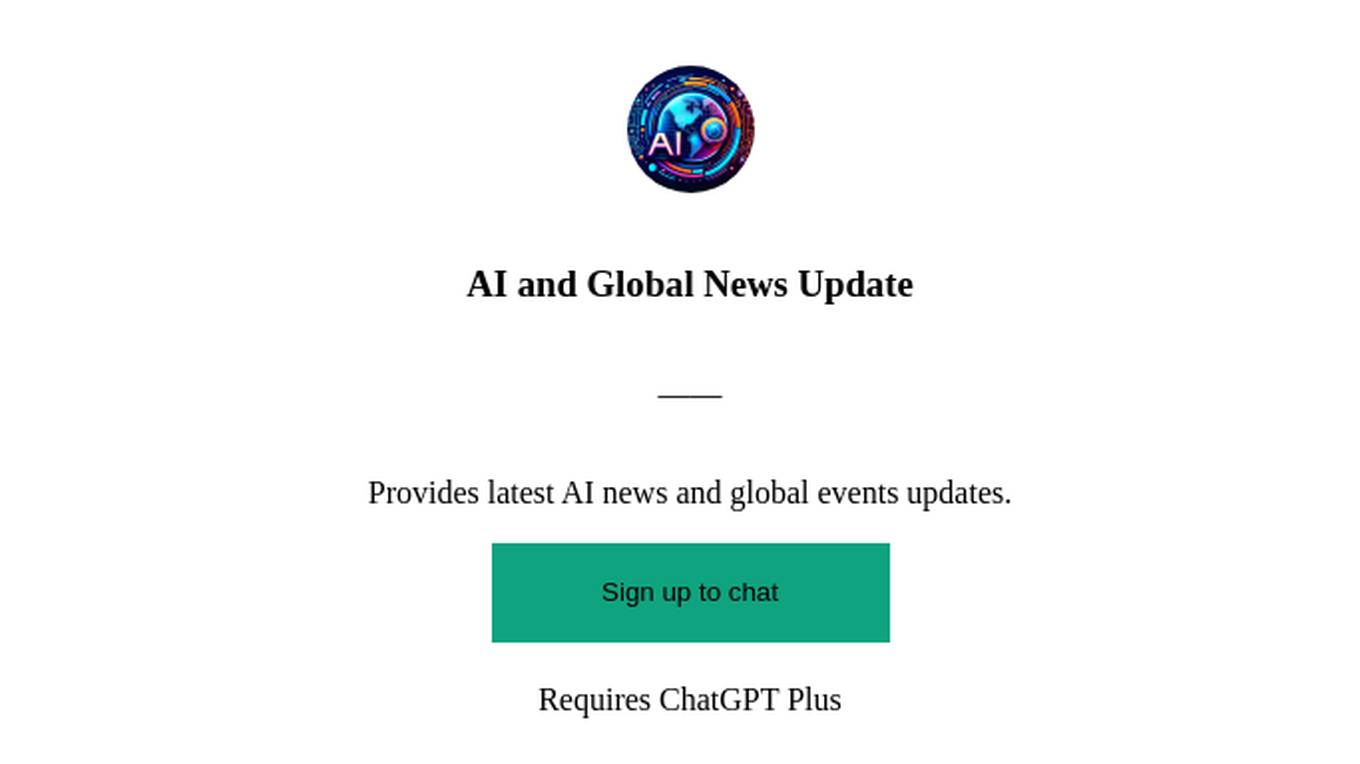Best AI tools for< Update Document >
20 - AI tool Sites
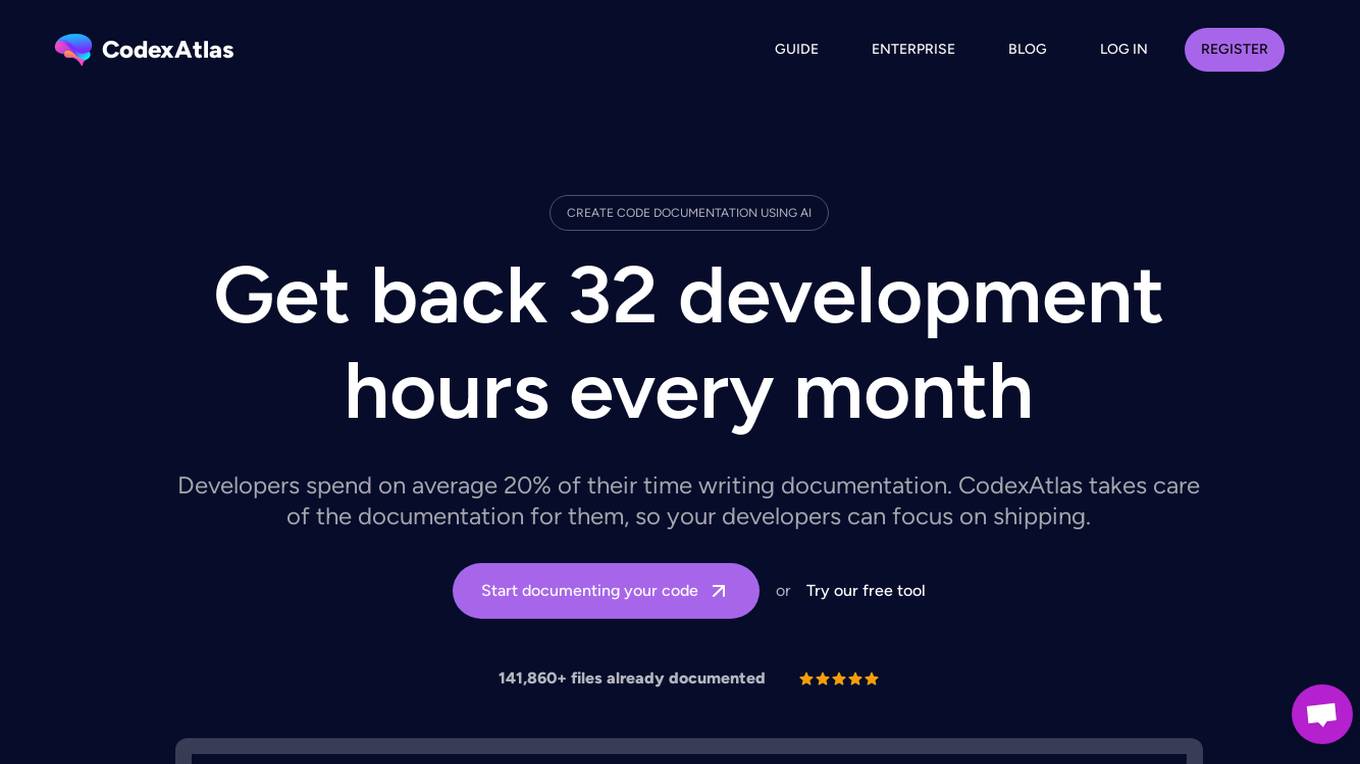
CodexAtlas
CodexAtlas is an AI-powered tool designed to automate code documentation processes. It leverages the latest advancements in Artificial Intelligence to generate and maintain documentation for software projects, freeing developers from the time-consuming task of writing documentation. With features like real-time updates, onboarding time reduction, and use-case detection, CodexAtlas aims to streamline the documentation process and enhance developer productivity. The tool also offers code conversion capabilities, business domain knowledge integration, and the option for on-premise deployment to cater to diverse organizational needs.
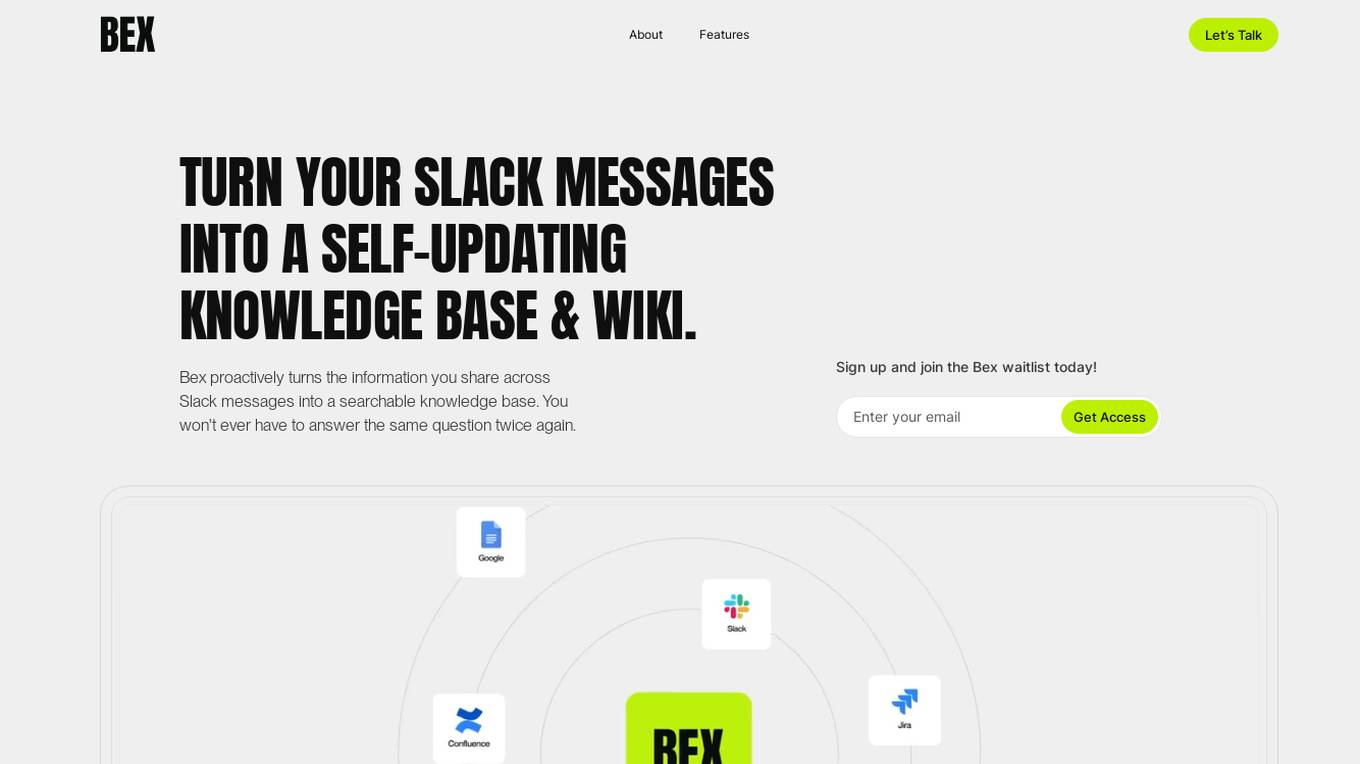
Bex
Bex is an AI tool that turns Slack messages into a self-updating knowledge base and wiki. It proactively extracts information shared in Slack messages and calls to create a searchable knowledge base, eliminating the need to answer the same questions repeatedly. Bex enhances collaboration by providing instant answers, capturing important insights, and updating documentation seamlessly. It offers features like voice notes, thread summarization, instant answers, and auto-updating documentation to streamline workflows and keep information up-to-date.
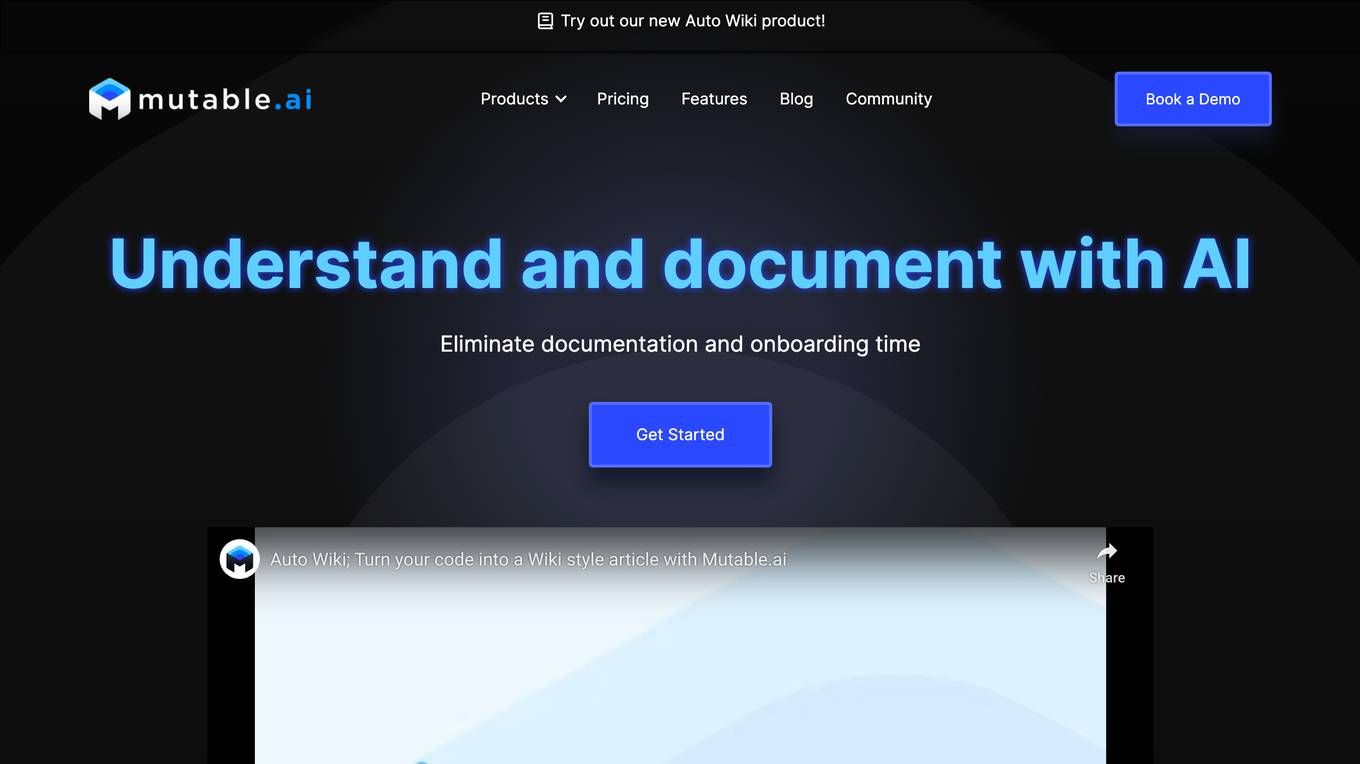
Mutable.ai
Mutable.ai is an AI tool that provides human quality assistance with codebases. It offers features such as creating Wikipedia-style documentation for code, generating wiki articles automatically, and enabling AI chat for extracting answers quickly. The application aims to enhance productivity and satisfaction for software engineers by leveraging AI advancements to revolutionize programming methods. The team behind Mutable.ai includes experts from various prestigious backgrounds, ensuring high-quality service and support.

Motif
Motif is a technical writing platform that uses artificial intelligence to help you create and maintain technical documentation. It provides a suite of tools and APIs that can be used to automate the documentation process, ensuring that your content is always up-to-date and accurate.
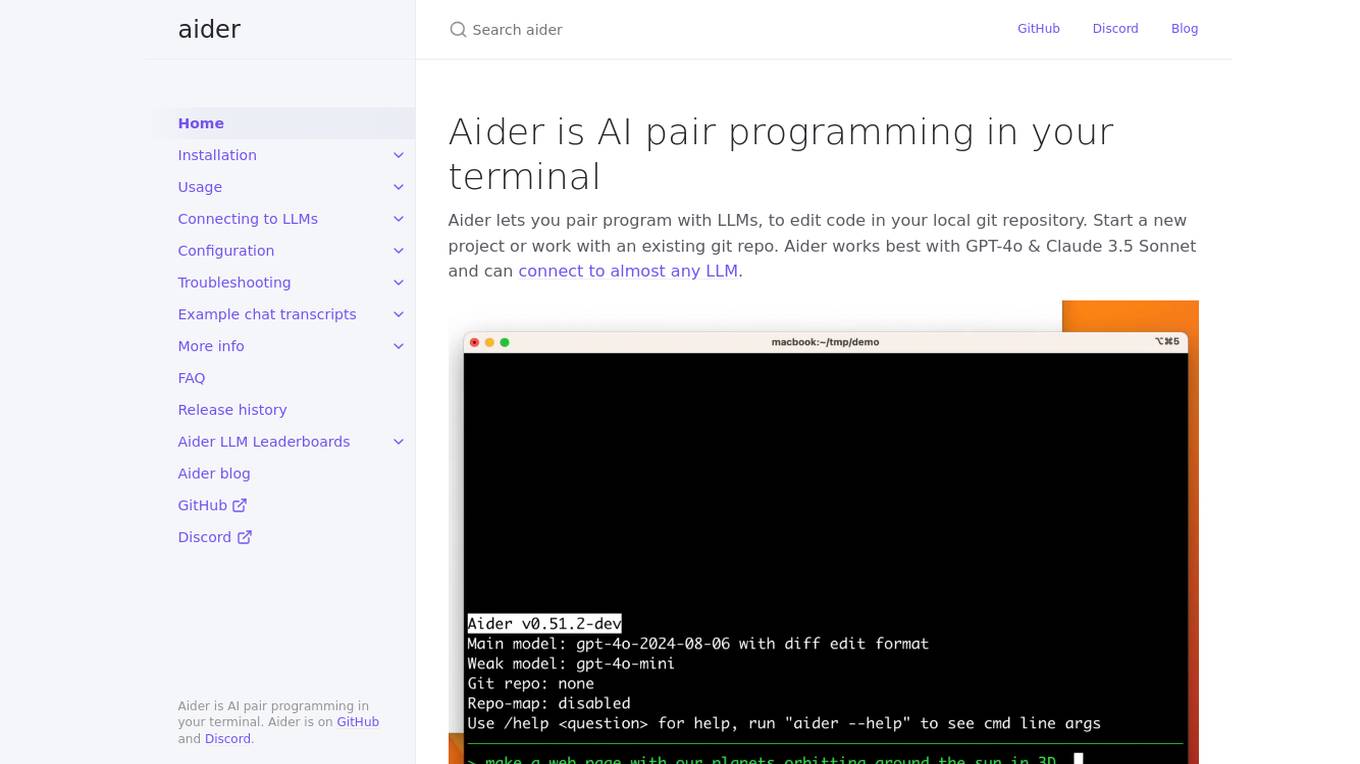
Aider
Aider is an AI pair programming tool that allows users to collaborate with Language Model Models (LLMs) to edit code in their local git repository. It supports popular languages like Python, JavaScript, TypeScript, PHP, HTML, and CSS. Aider can handle complex requests, automatically commit changes, and work well in larger codebases by using a map of the entire git repository. Users can edit files while chatting with Aider, add images and URLs to the chat, and even code using their voice. Aider has received positive feedback from users for its productivity-enhancing features and performance on software engineering benchmarks.
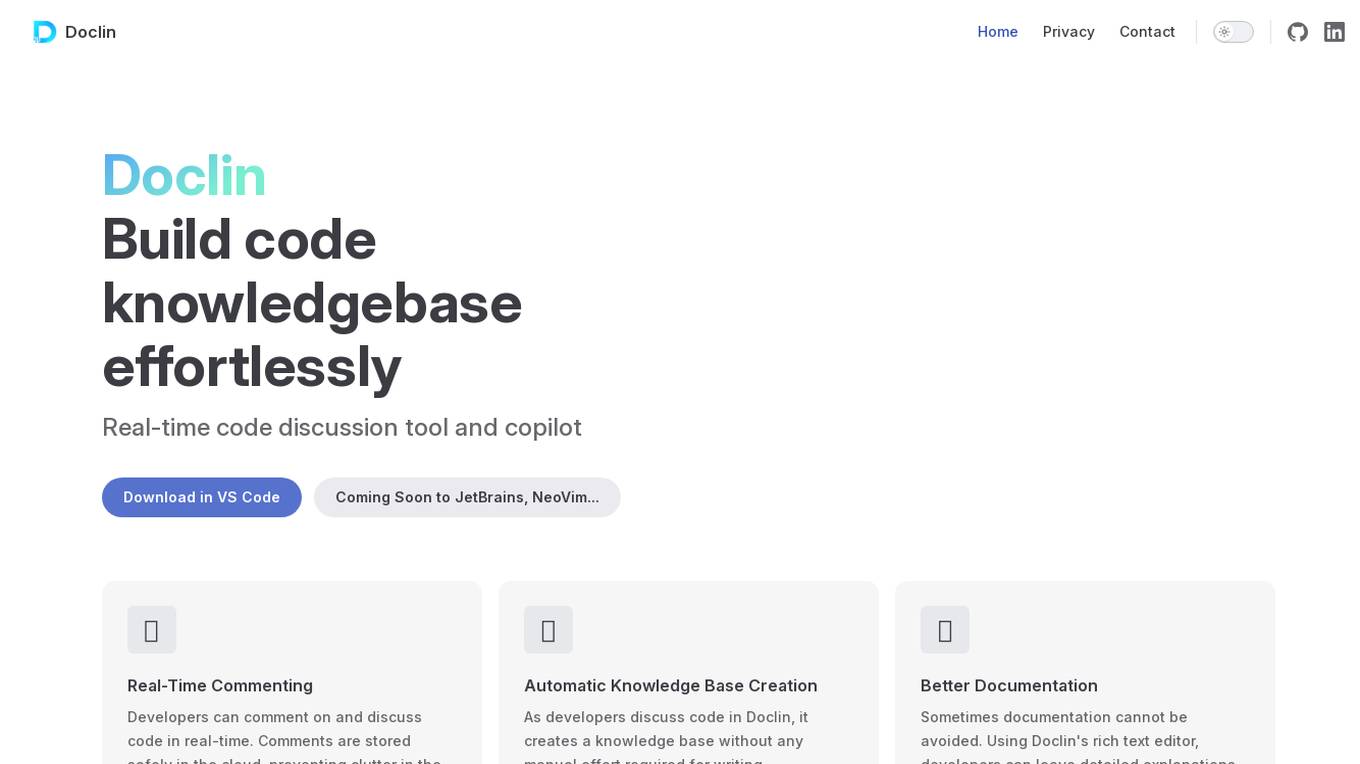
Doclin
Doclin is an AI-powered real-time code discussion tool and copilot that helps developers build a code knowledge base effortlessly. It allows developers to comment on and discuss code in real-time, store comments safely in the cloud, and automatically create a knowledge base while discussing code. Doclin also offers a rich text editor for better documentation, keeps documentation up-to-date by flagging changes, and does not require access to the git repository. The upcoming Copilot feature will leverage generative AI to assist in understanding complex code and business logic.
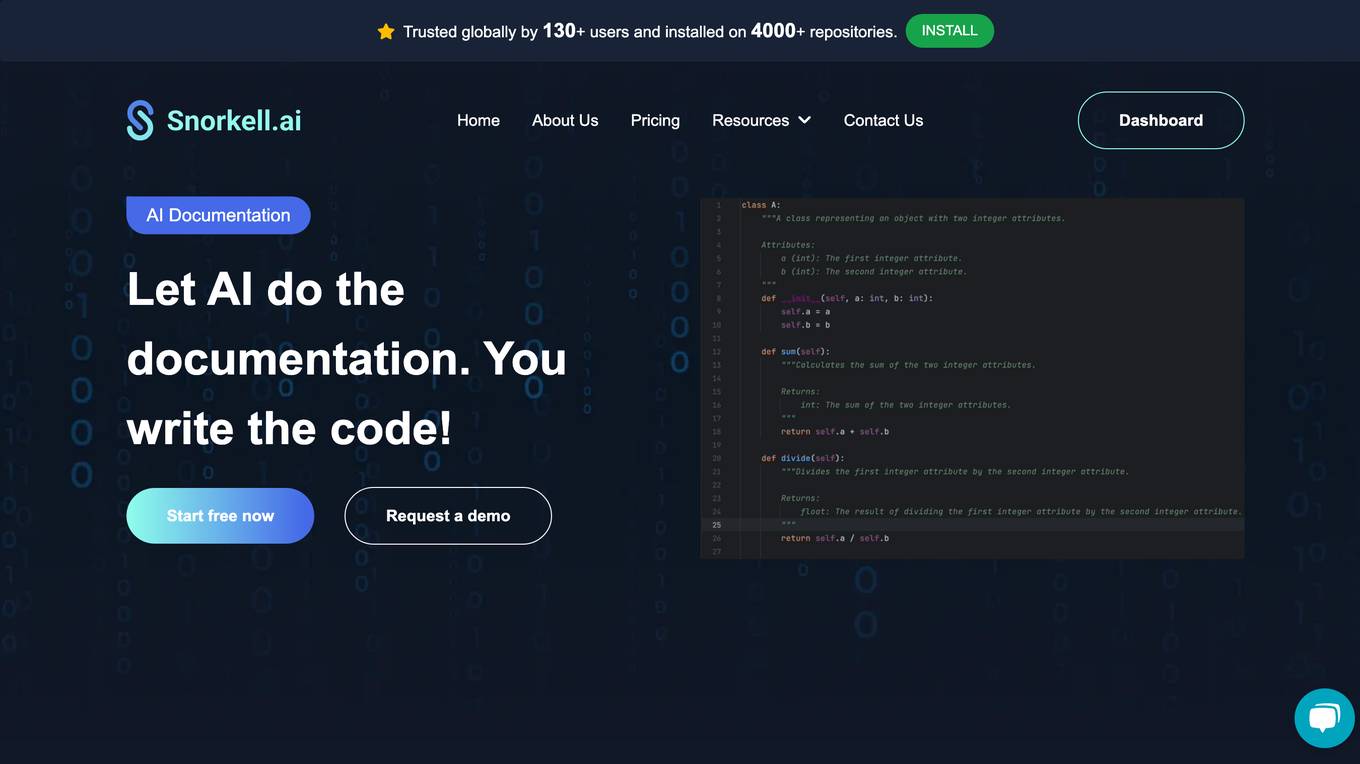
Snorkell.ai
Snorkell.ai is an automated documentation generation tool that uses AI to create and update docstrings for GitHub projects. It supports multiple programming languages, including Python, JavaScript, TypeScript, Java, and Kotlin. Snorkell.ai integrates with GitHub and automatically generates docstrings whenever a pull request is merged, ensuring that documentation is always up-to-date with the codebase. It helps developers save time and effort by automating the documentation process, leading to improved code quality and reduced onboarding time.
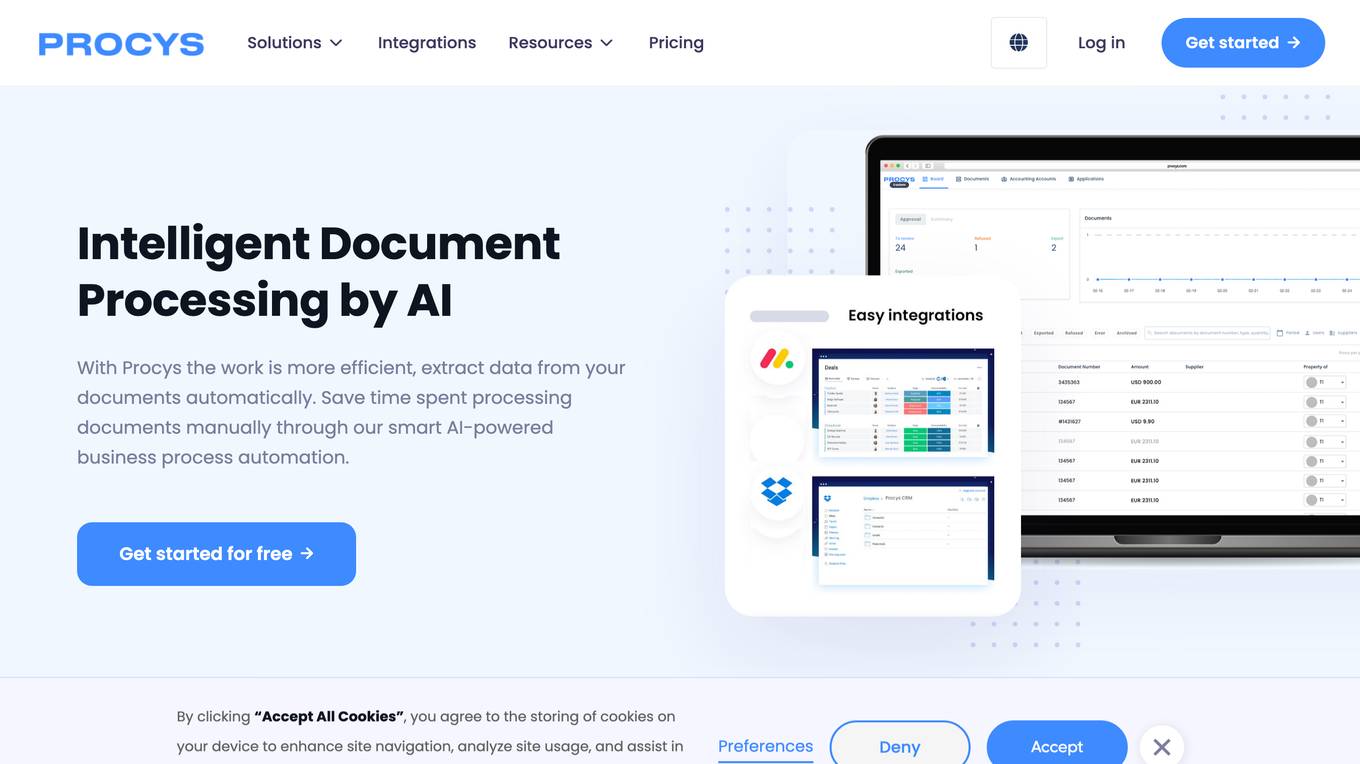
Procys
Procys is a document processing platform powered by AI solutions. It offers a self-learning engine for document processing, seamless integration with over 260 apps, OCR API powered by AI for optical character recognition, customized data extraction capabilities, and AI autosplit feature for automatic document splitting. Procys caters to various industries such as accounting firms, travel & hospitality, and restaurants, providing solutions for invoice OCR, purchase order OCR, ID card OCR, and receipt OCR. The platform aims to automate and streamline document workflows, saving time, reducing errors, and ensuring compliance for businesses.
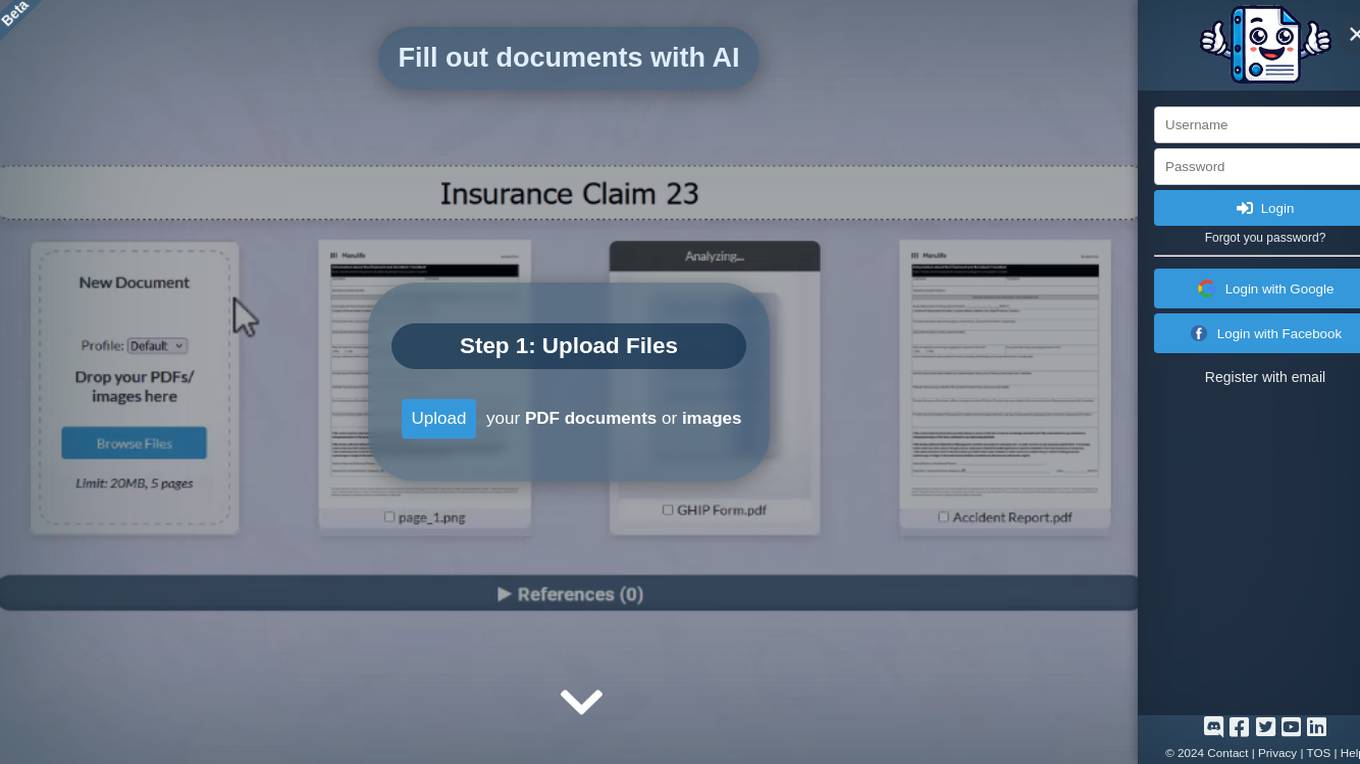
Docamine
Docamine is an AI-powered platform designed to streamline the document filling process. Users can easily upload PDF documents or images, edit and review AI-created fields, update missing information, add references, upload supporting documents, and autofill/update forms. The platform also allows users to draw their signature, download the filled-out PDF, and add profiles for other people. With AI capabilities, Docamine continuously learns to provide better results over time, making document management more efficient and accurate.

Bookeeping.ai
Bookeeping.ai is an AI-powered accounting tool that automates 95% of financial tasks, offering stress-free solutions for businesses and individuals. It replaces traditional accounting software and manual processes by leveraging artificial intelligence to streamline tasks such as tax form filing, receipt matching, document creation, and more. Bookeeping.ai aims to save time, money, and reduce the complexities associated with financial management. Users can interact with the AI accountant through chat messages to complete various financial tasks efficiently.
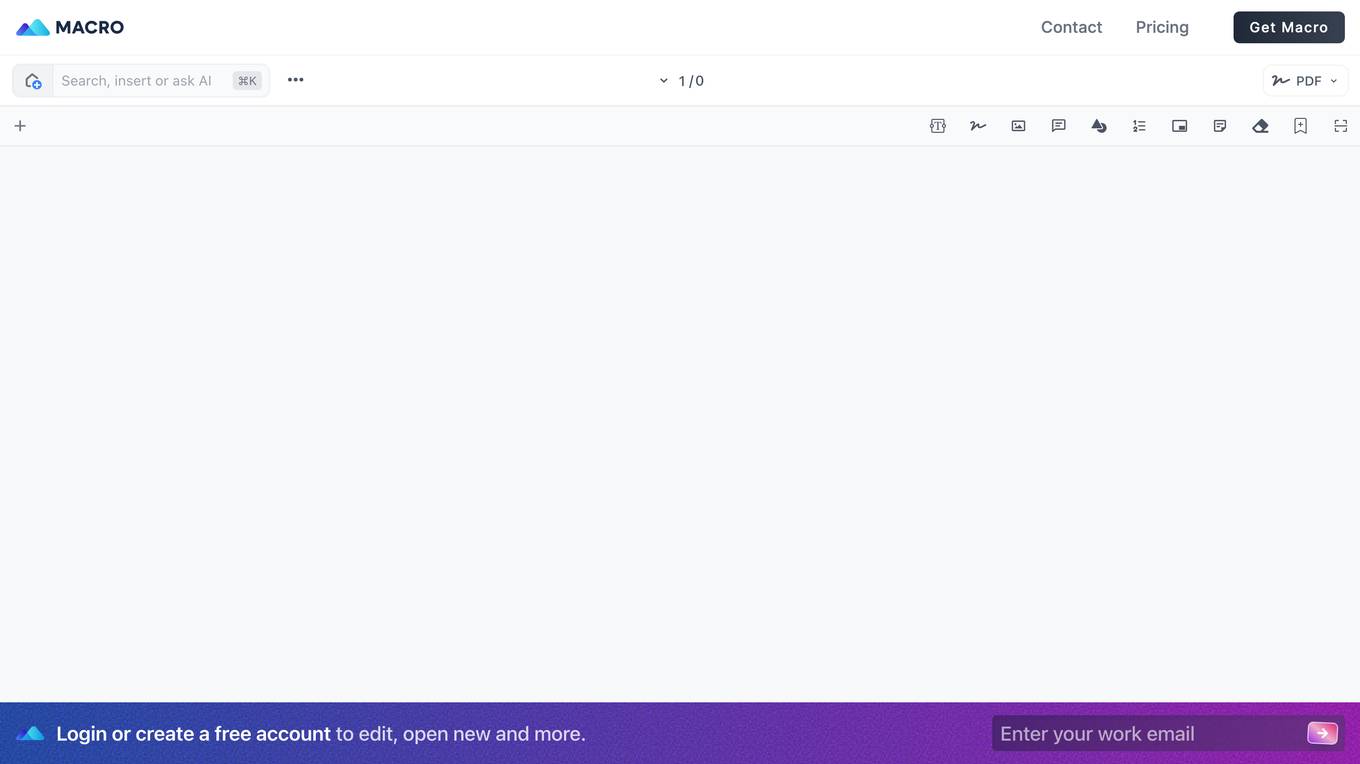
DynamicWeb
The website is a platform that requires JavaScript to be enabled in order to run the application. It likely offers interactive features or functionalities that rely on JavaScript for dynamic content and user interaction. The website may provide various services or tools that enhance user experience through dynamic elements and real-time updates.
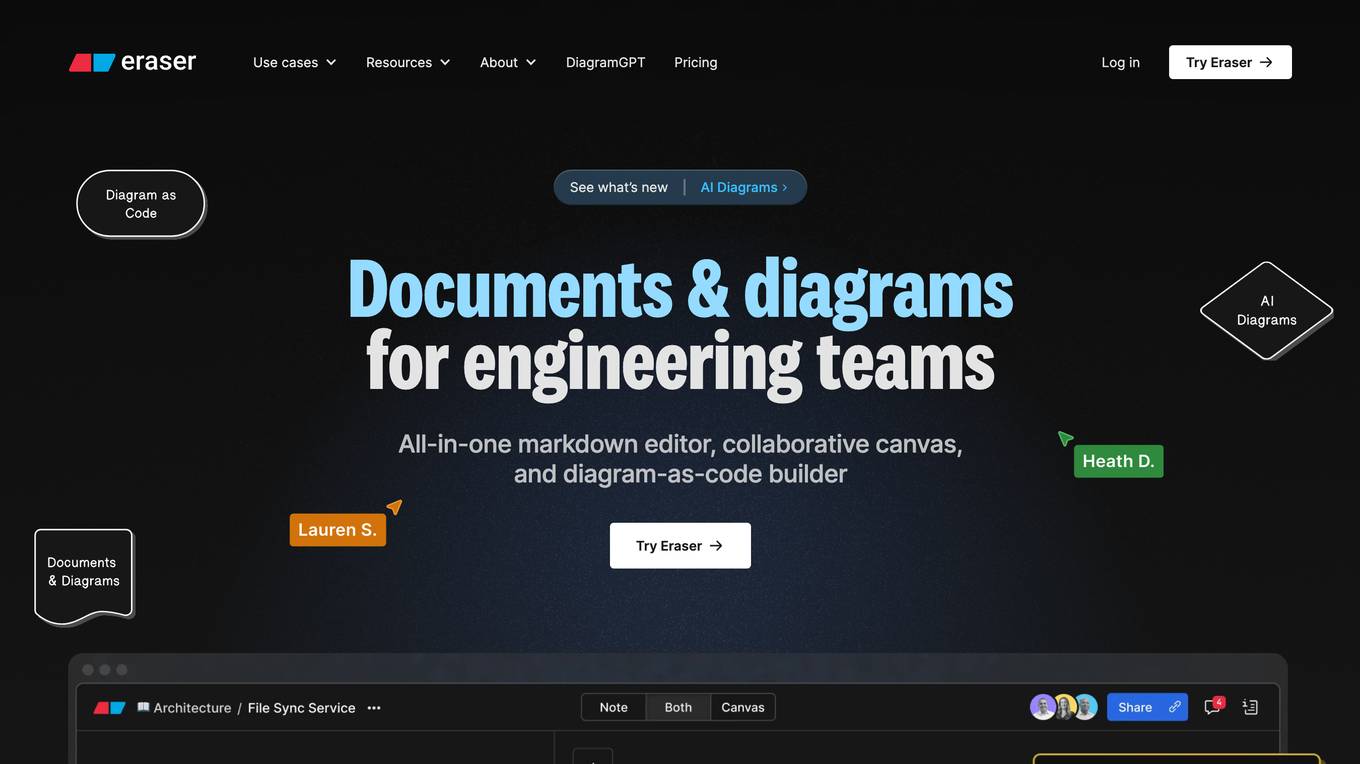
Eraser
Eraser is an AI co-pilot for technical design that offers a range of features to create diagrams, codebase diagrams, design docs, and technical documentation at the speed of thought. It provides integrations with popular platforms like Confluence, Notion, VS Code, and GitHub, making it a versatile tool for enterprise architects, DevOps, technology consultants, and software engineers. Eraser ensures accurate and consistent designs faster, with beautiful default visuals and a focus on usability. The tool allows visualization of cloud architecture, entity relationships, flow charts, and sequences, enhancing documentation creation and workflow efficiency. Eraser is known for its version history, performance, workflow integration, markdown support, export capabilities, and Github integration, making it a preferred choice for technical teams globally.
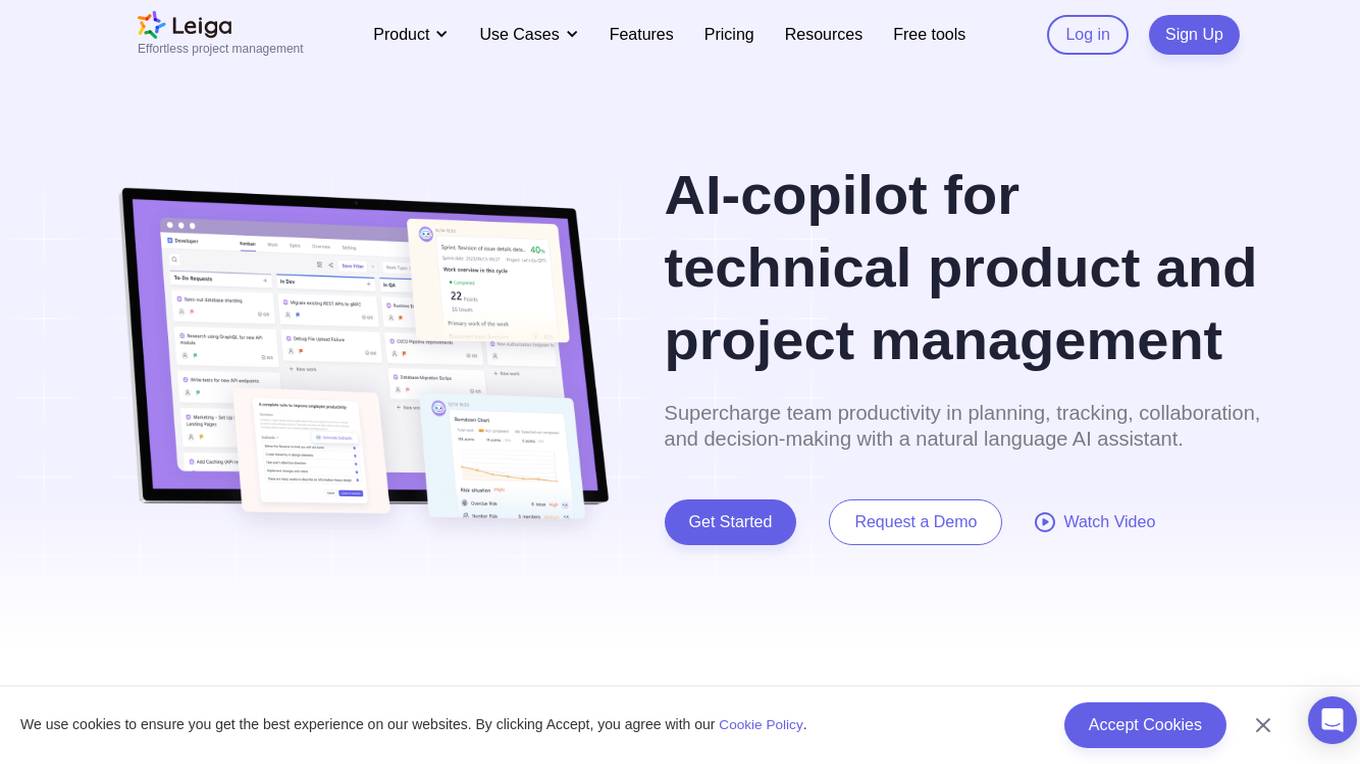
Leiga
Leiga is an AI-powered project management tool designed for product teams to enhance productivity in planning, tracking, collaboration, and decision-making. It features a natural language AI assistant that helps in generating reports, analyzing projects, interacting with AI-powered bots, generating subtasks, writing PRD documents, team management, sprint tracking, risk assessment, workflow automation, usage reports, and more. Leiga aims to streamline project management processes and improve team efficiency through AI-driven functionalities.
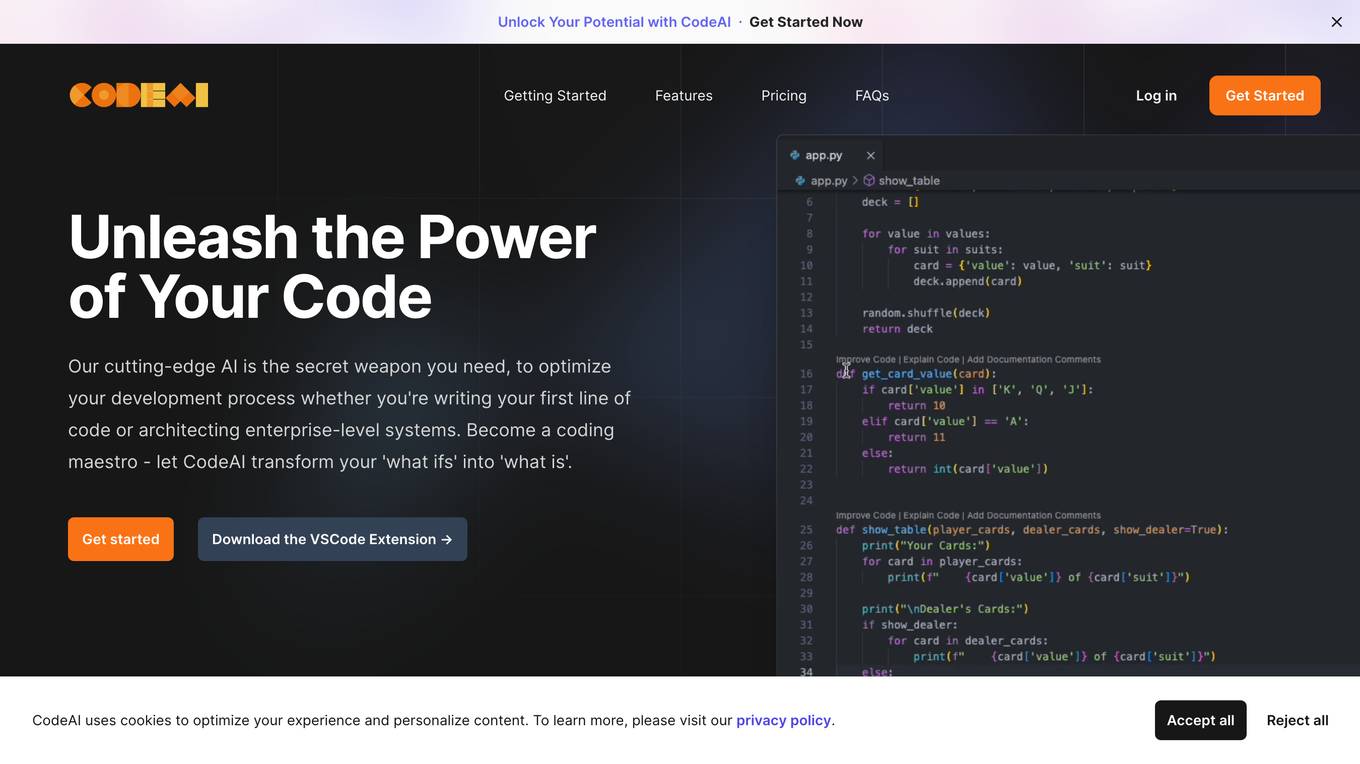
CodeAI
CodeAI is an advanced AI tool designed to optimize the development process for coders of all levels. It offers cutting-edge AI capabilities to enhance coding efficiency, provide real-time feedback, automate tasks like generating commit messages and updating changelogs, and boost productivity. CodeAI supports multiple programming languages and is suitable for individual developers, small teams, and professionals working on various projects.
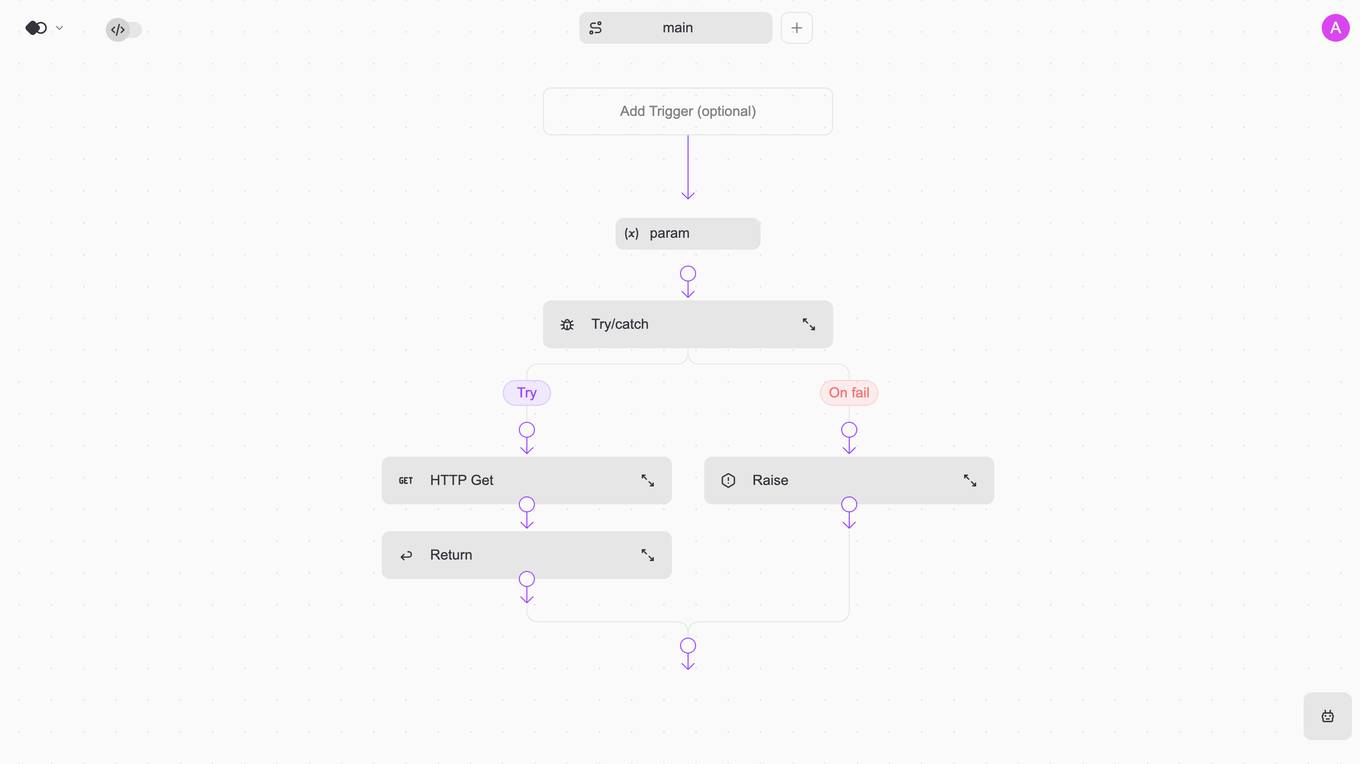
Doflow
Doflow is a cloud-based workflow automation platform that helps businesses of all sizes automate their workflows and processes. With Doflow, you can easily create automated workflows that connect your apps and data, and streamline your business operations. Doflow is easy to use, even for non-technical users, and it can help you save time and money by automating your workflows.
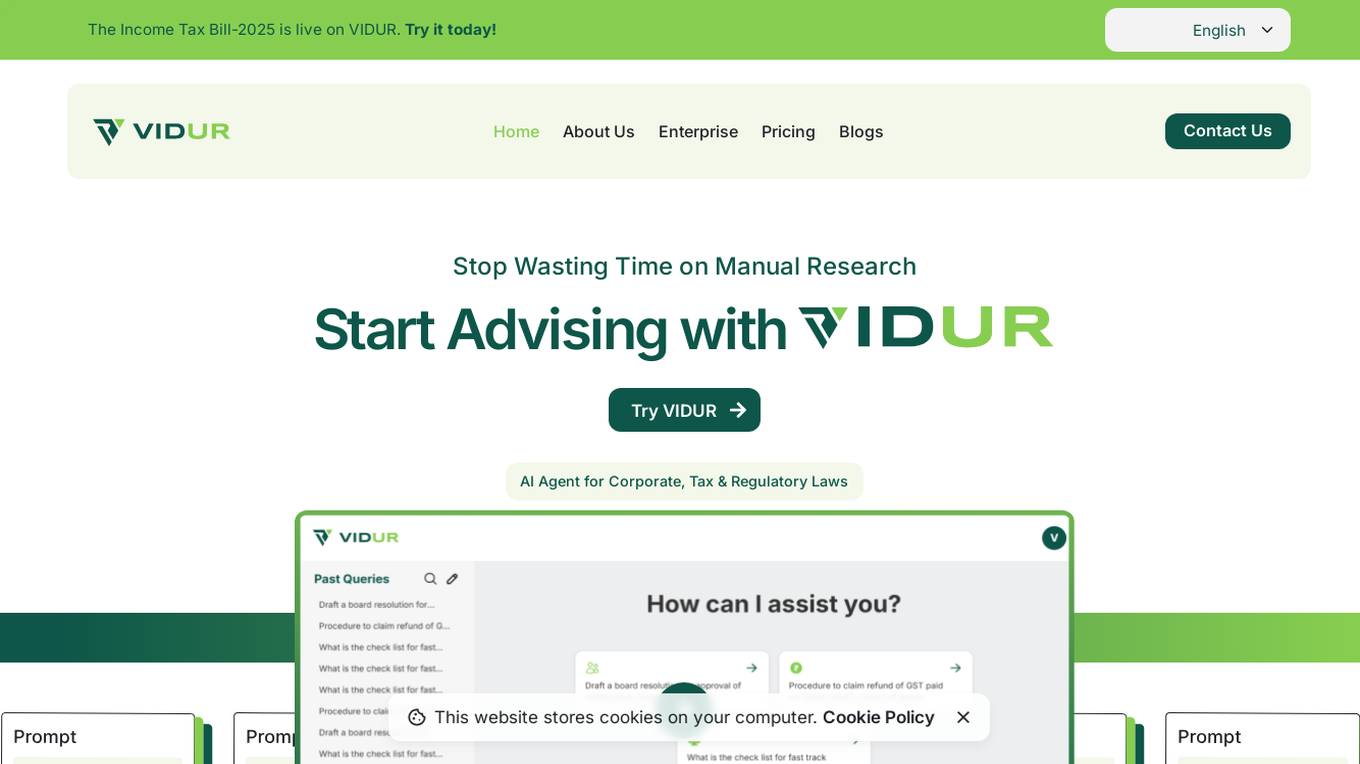
VIDUR
VIDUR is an AI agent designed for Corporate, Tax & Regulatory Laws. It provides expert-verified responses, updates, advisory, and drafts in a simple language format. The application is built by Ex Big4 and Tier 1 Law Firm Professionals, offering up-to-date knowledge from 250+ experts and Bharat Laws. VIDUR streamlines research processes, saves time, and ensures accuracy by harnessing proprietary access to knowledge and delivering high-quality, reliable results across diverse domains such as Income Tax, GST, Companies Act, and more.
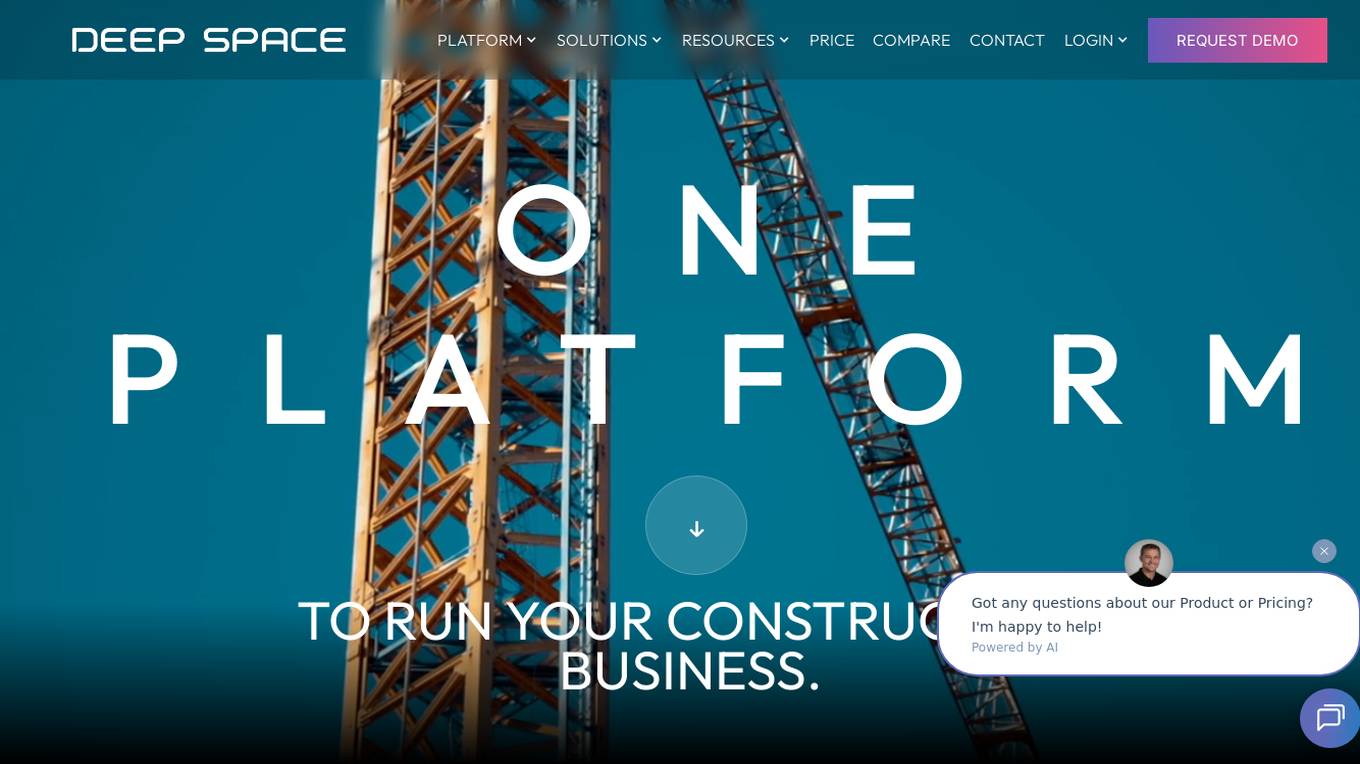
Deep Space
Deep Space is an all-in-one AI-powered construction management software platform designed for mid-sized commercial builders in Australia and New Zealand. It replaces the need for multiple tools by providing a connected operating system that integrates costings, schedules, site teams, and systems. The platform offers features such as preconstruction, scheduling, procurement, commercial delivery, documentation, HSEQ reporting, and AI assistant solutions. Deep Space aims to streamline project management processes, improve visibility, and enhance coordination across the full project lifecycle.
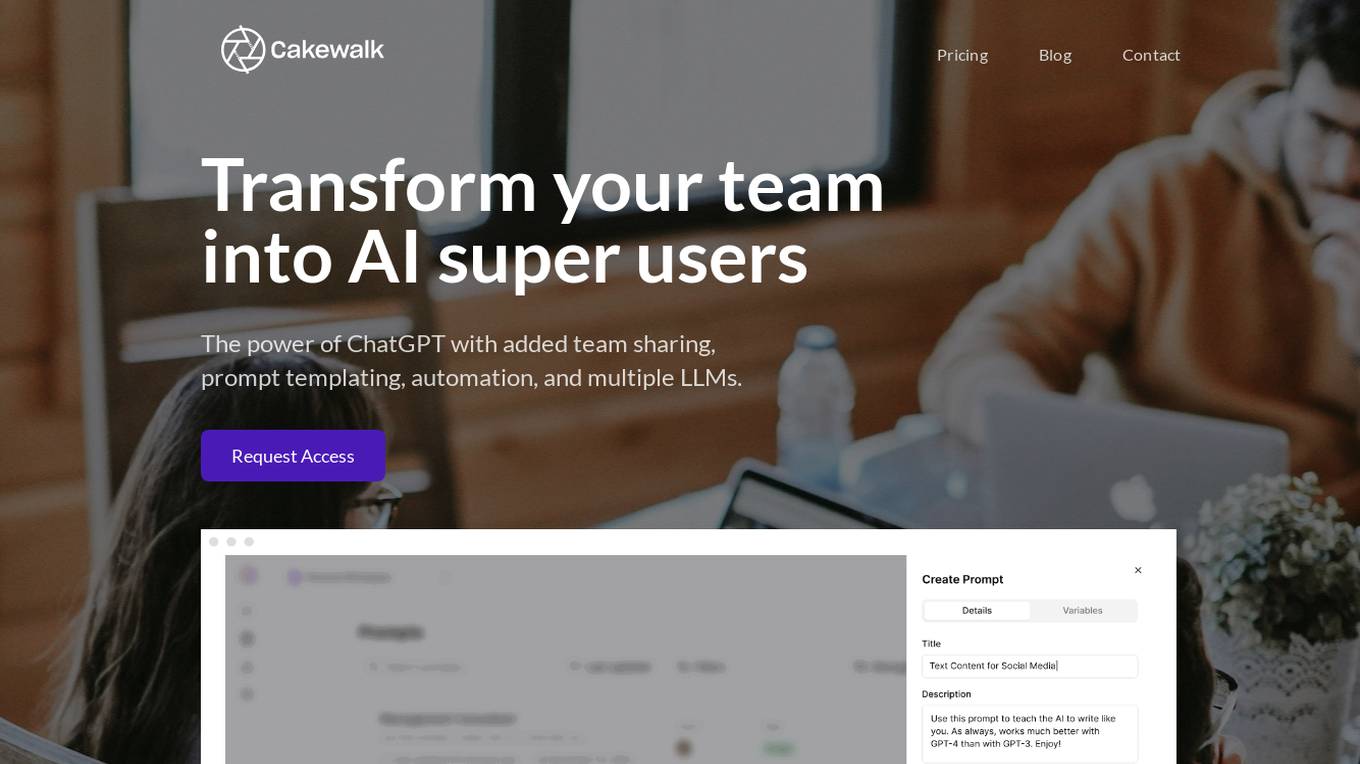
Cakewalk AI
Cakewalk AI is an AI-powered platform designed to enhance team productivity by leveraging the power of ChatGPT and automation tools. It offers features such as team workspaces, prompt libraries, automation with prebuilt templates, and the ability to combine documents, images, and URLs. Users can automate tasks like updating product roadmaps, creating user personas, evaluating resumes, and more. Cakewalk AI aims to empower teams across various departments like Product, HR, Marketing, and Legal to streamline their workflows and improve efficiency.
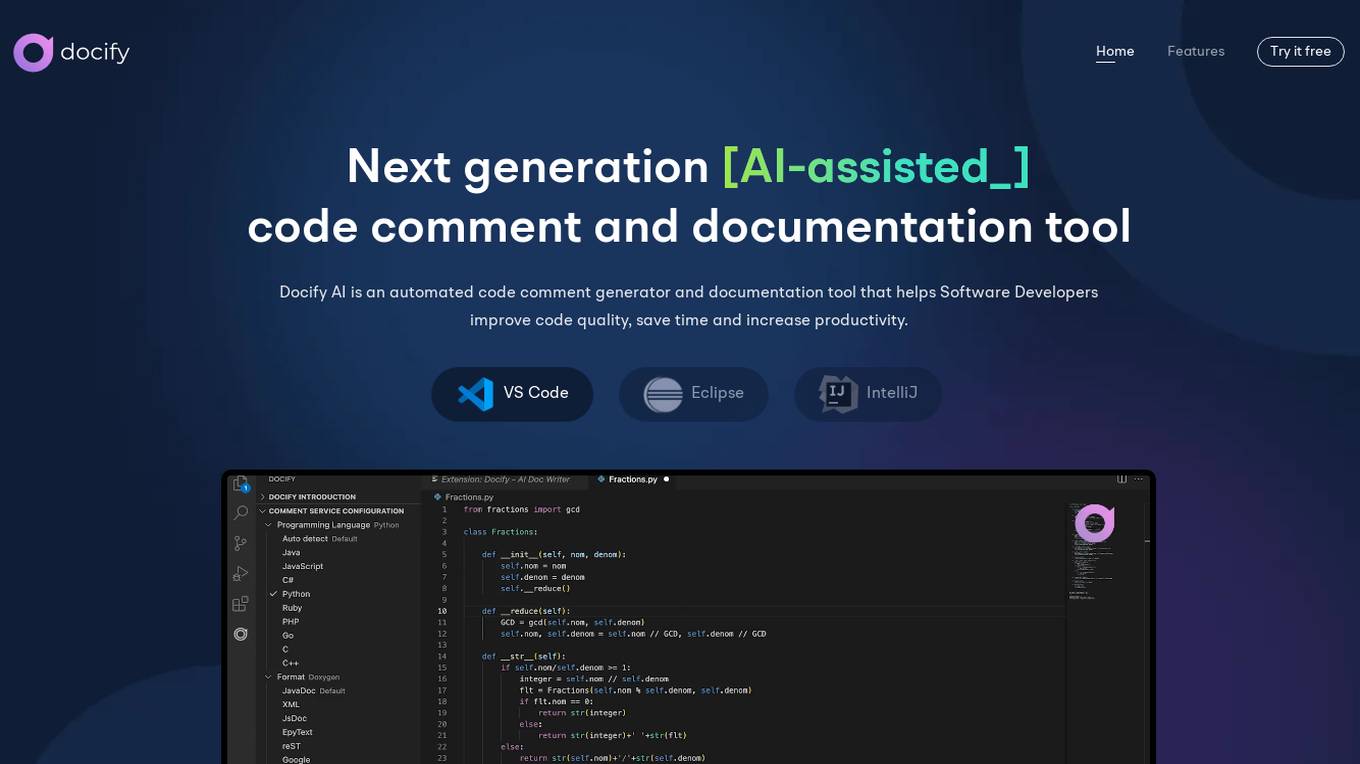
Docify AI
Docify AI is an AI-assisted code comment and documentation tool designed to help software developers improve code quality, save time, and increase productivity. It offers features such as automated documentation generation, comment translation, inline comments, and code coverage analysis. The tool supports multiple programming languages and provides a user-friendly interface for efficient code documentation. Docify AI is built on proprietary AI models, ensuring data privacy and high performance for professional developers.

OpenAiGeek
OpenAiGeek is a comprehensive website dedicated to providing the latest updates on artificial intelligence (AI) news, tools, and chatbots. It serves as a valuable resource for individuals and businesses seeking to stay informed about the rapidly evolving field of AI. The website features a wide range of articles covering various AI-related topics, including news on the latest AI advancements, in-depth reviews of AI tools, and interviews with industry experts. OpenAiGeek also offers a directory of AI tools, making it easy for users to discover and explore different AI applications. Additionally, the website provides a platform for users to engage in discussions and share their experiences with AI.
0 - Open Source AI Tools
20 - OpenAI Gpts
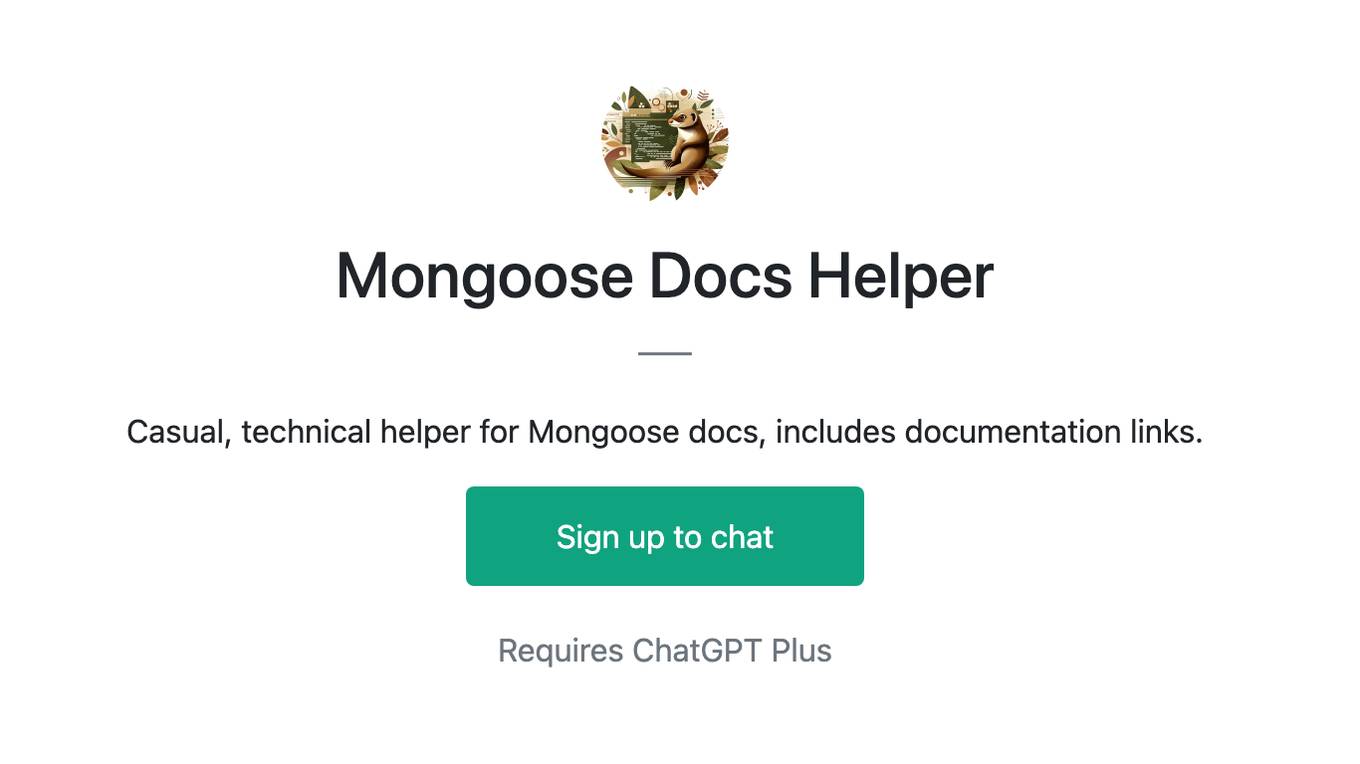
Mongoose Docs Helper
Casual, technical helper for Mongoose docs, includes documentation links.

Impôt Expert Québec
Expert in Quebec income tax returns, providing precise, professional advice. (2022 documents will update when 2023 documents are available)
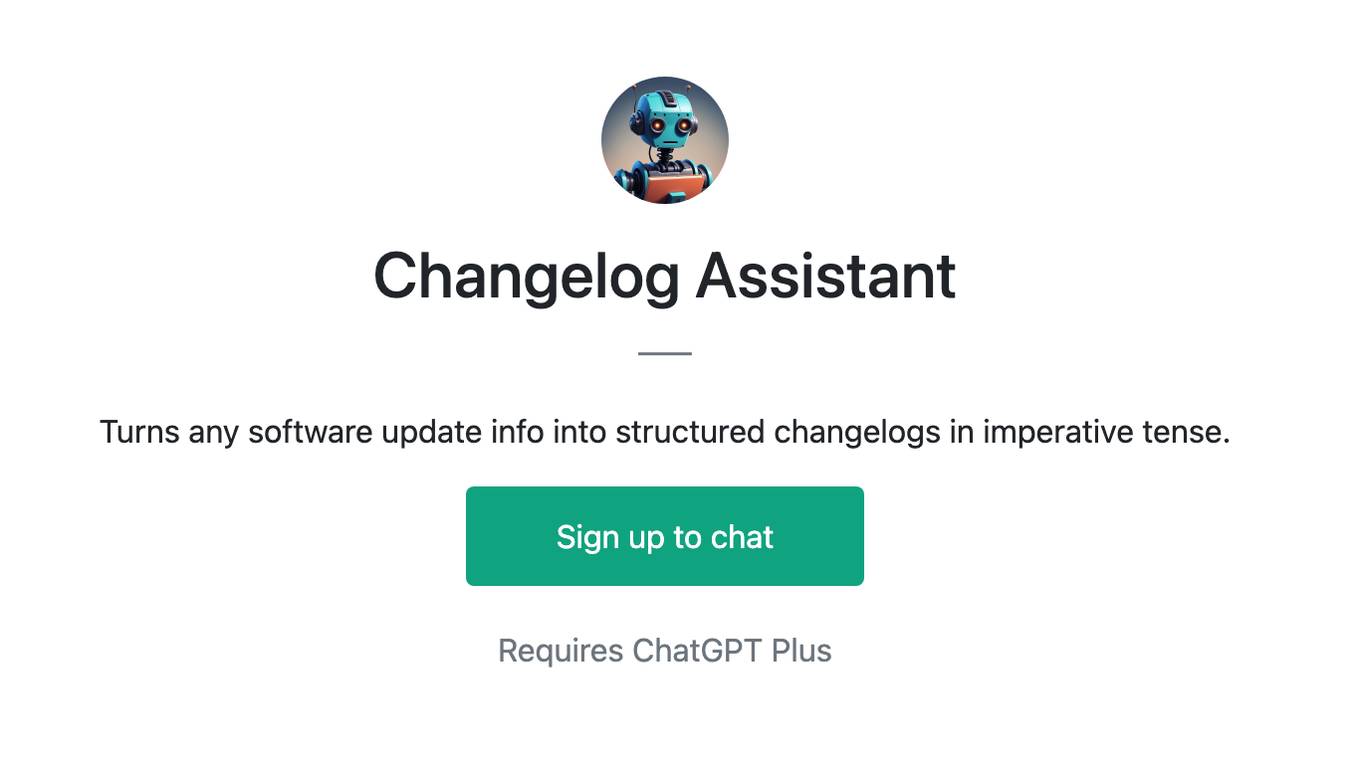
Changelog Assistant
Turns any software update info into structured changelogs in imperative tense.
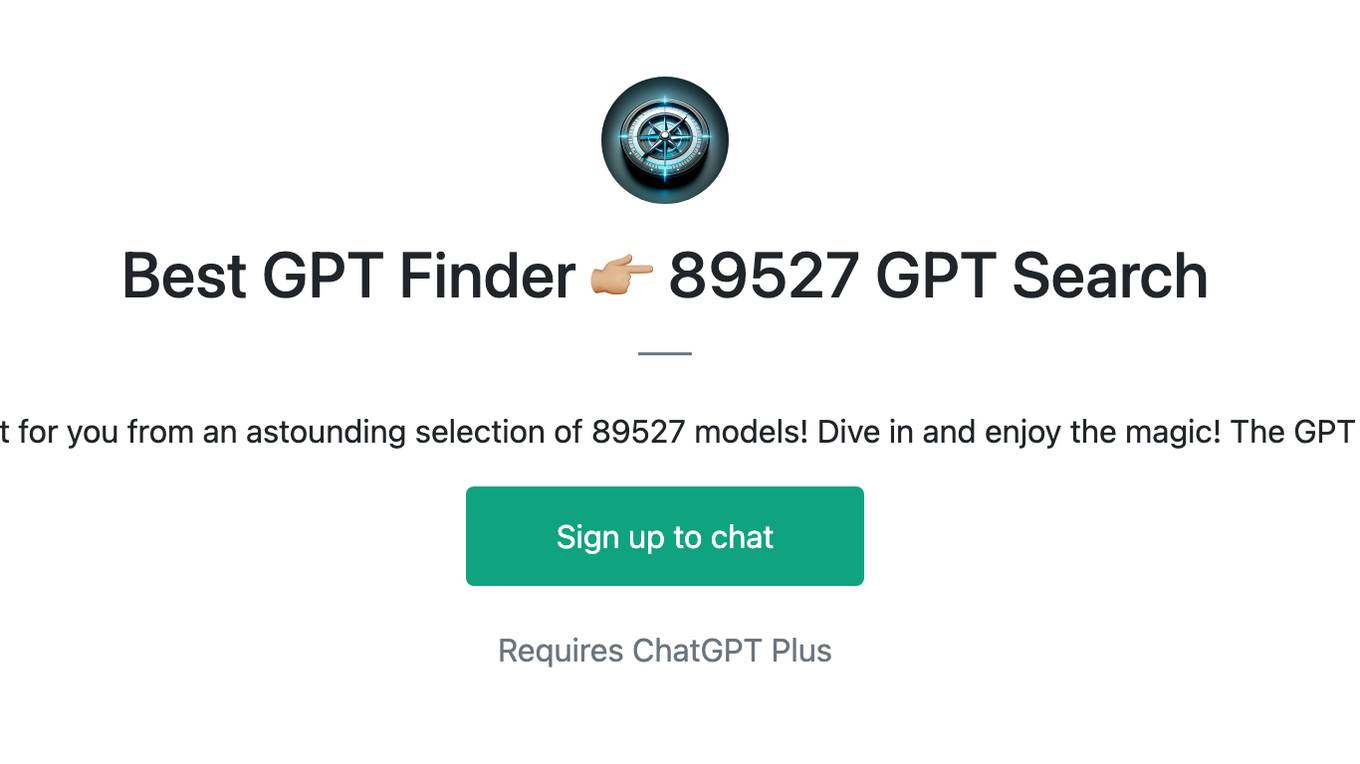
Best GPT Finder 👉🏼 89527 GPT Search
Discover the perfect GPTs tailored just for you from an astounding selection of 89527 models! Dive in and enjoy the magic! The GPT repository will update continuously!
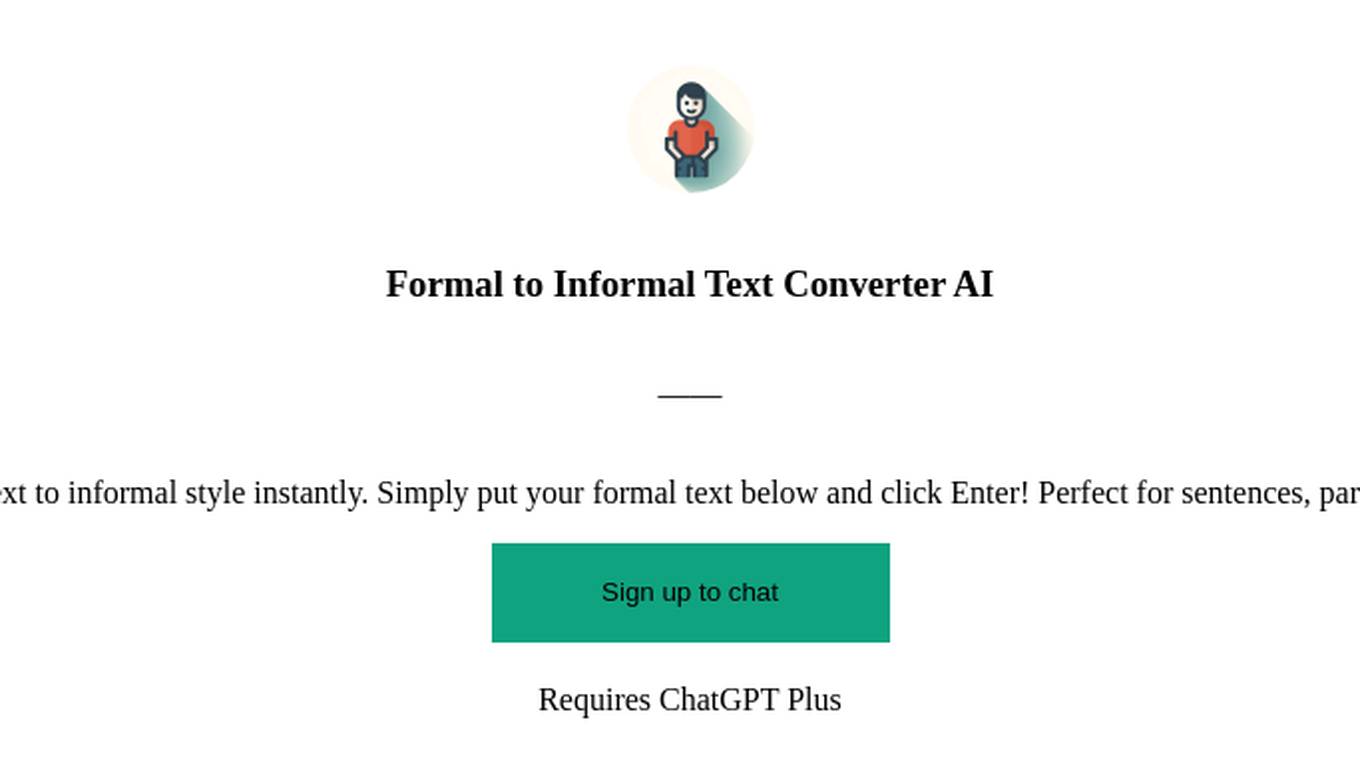
Formal to Informal Text Converter AI
I convert and turn formal text to informal style instantly. Simply put your formal text below and click Enter! Perfect for sentences, paragraphs, and daily messages.
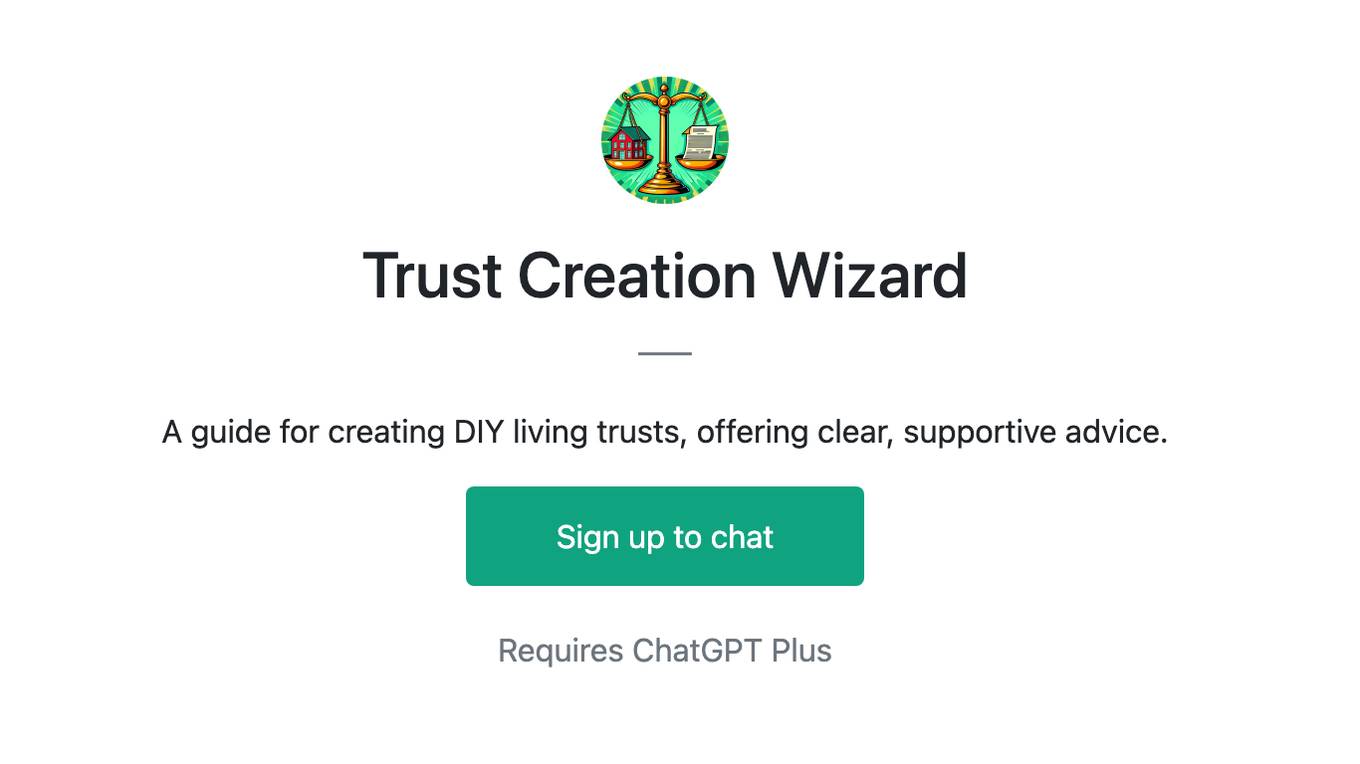
Trust Creation Wizard
A guide for creating DIY living trusts, offering clear, supportive advice.
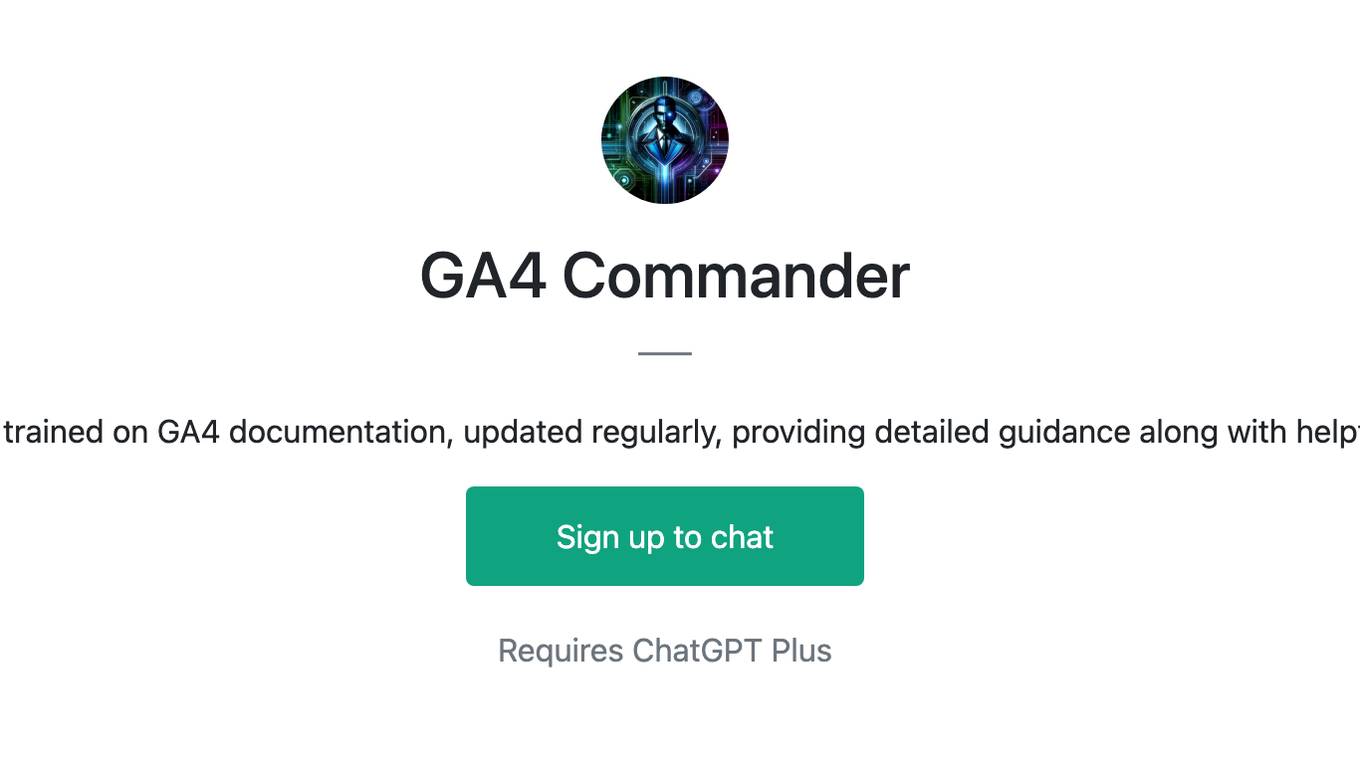
GA4 Commander
A chatbot trained on GA4 documentation, updated regularly, providing detailed guidance along with helpful links.
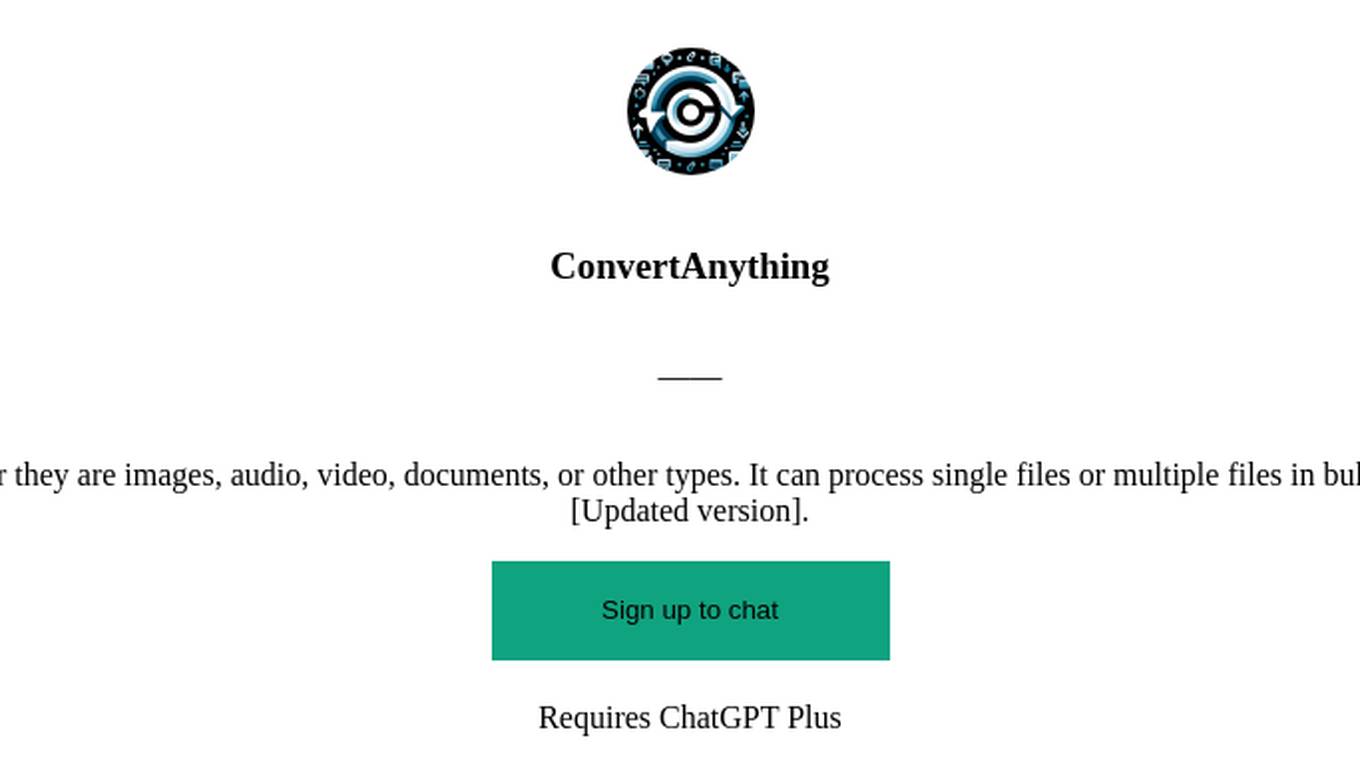
ConvertAnything
The ultimate tool for converting files, whether they are images, audio, video, documents, or other types. It can process single files or multiple files in bulk, accepts ZIP files, and offers a download link [Updated version].
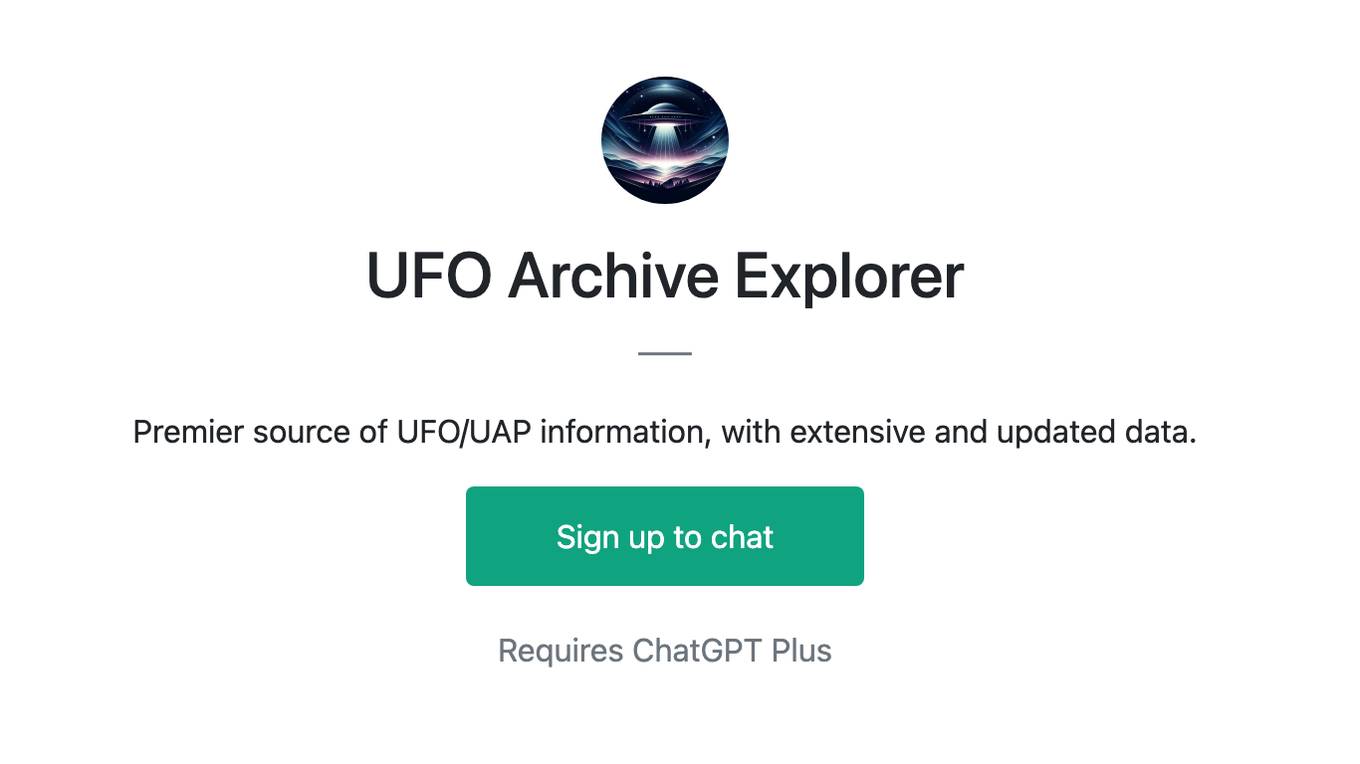
UFO Archive Explorer
Premier source of UFO/UAP information, with extensive and updated data.
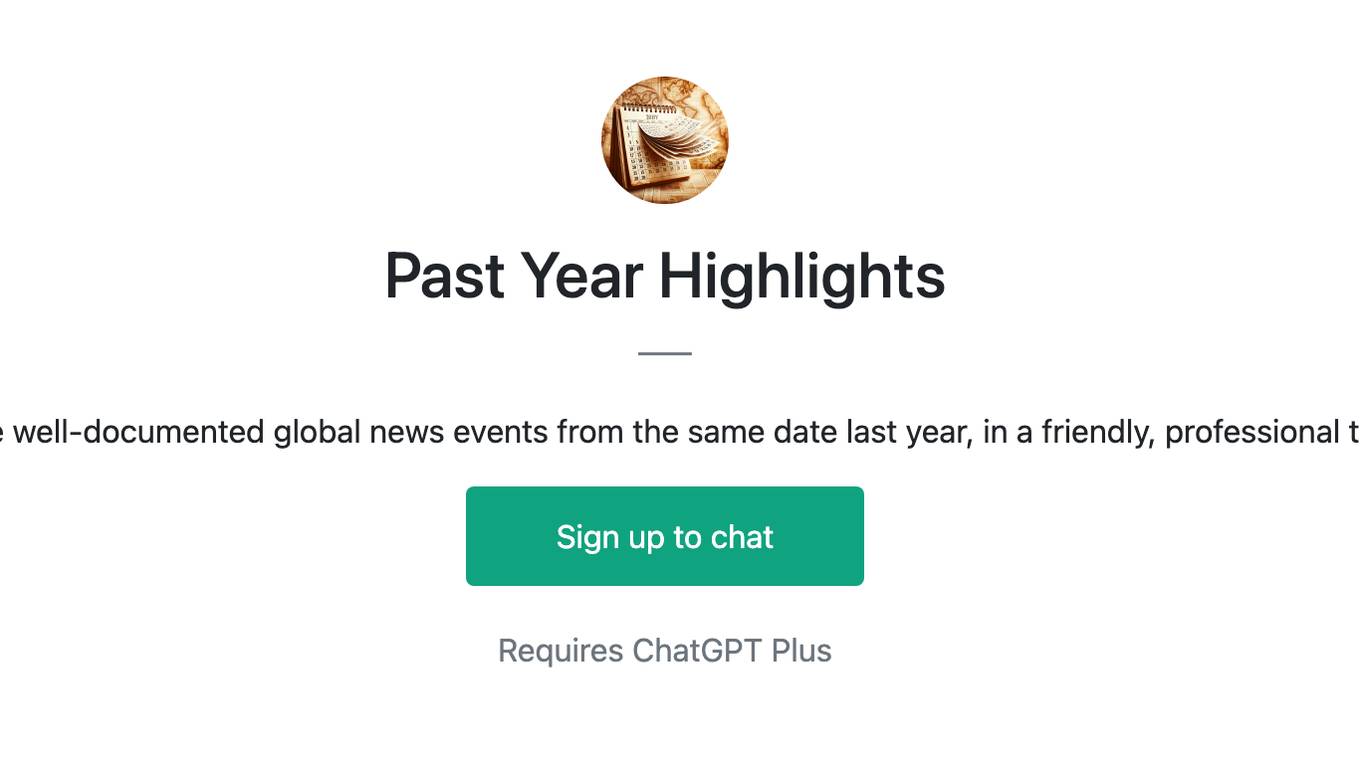
Past Year Highlights
I share well-documented global news events from the same date last year, in a friendly, professional tone.
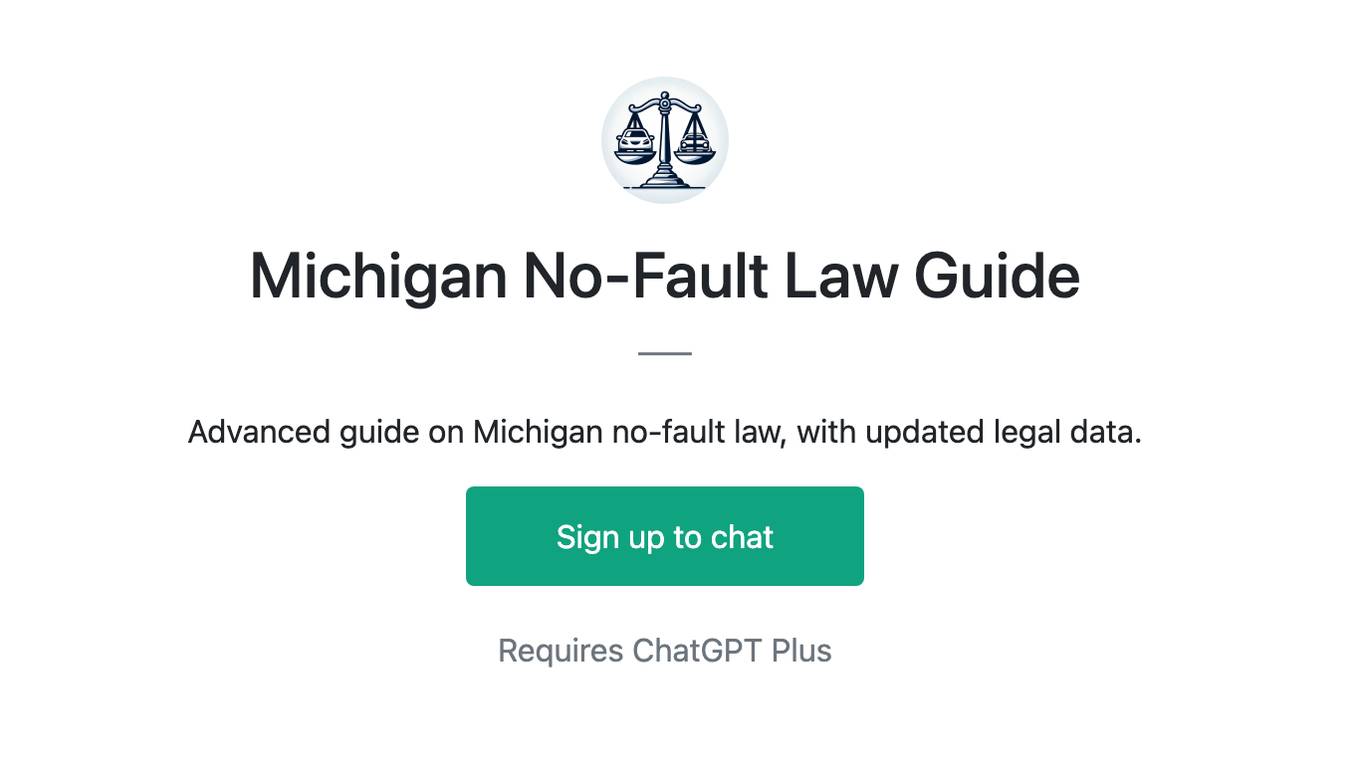
Michigan No-Fault Law Guide
Advanced guide on Michigan no-fault law, with updated legal data.
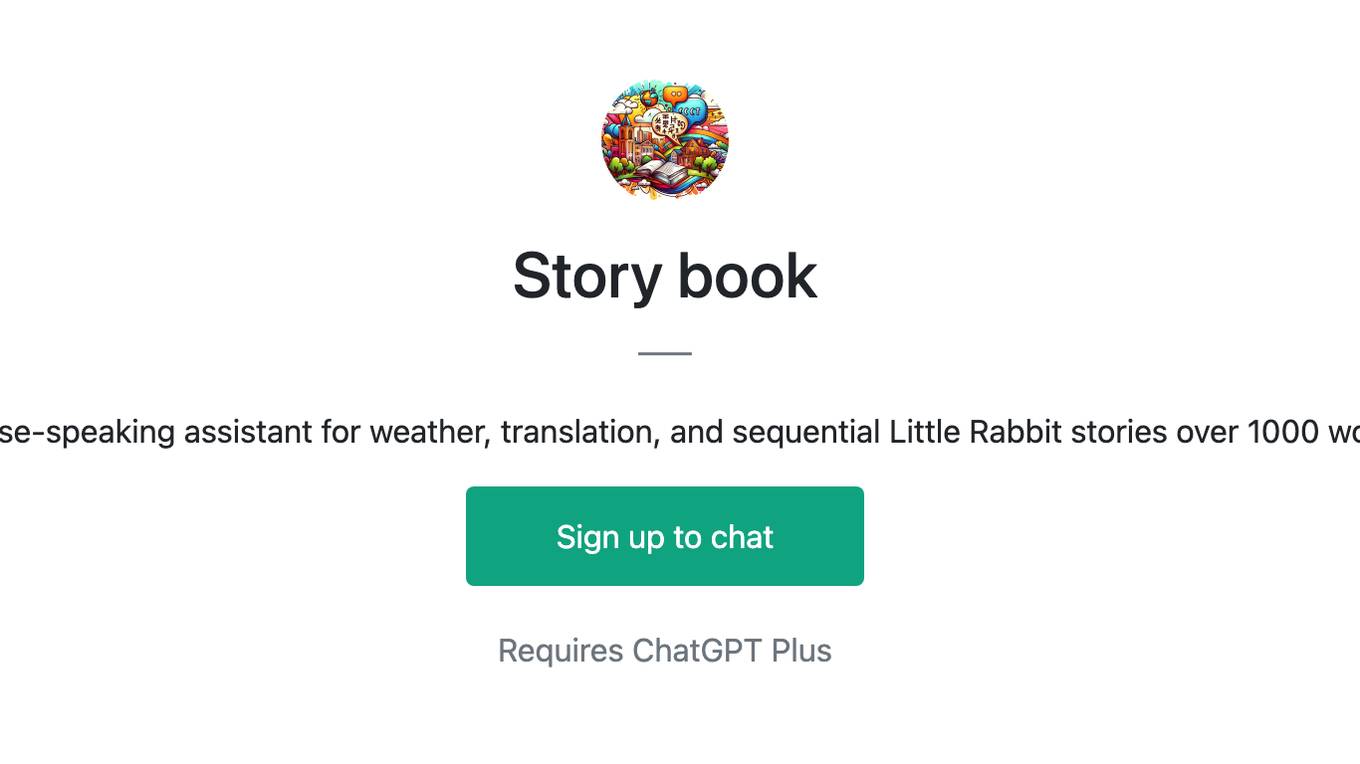
Story book
Chinese-speaking assistant for weather, translation, and sequential Little Rabbit stories over 1000 words
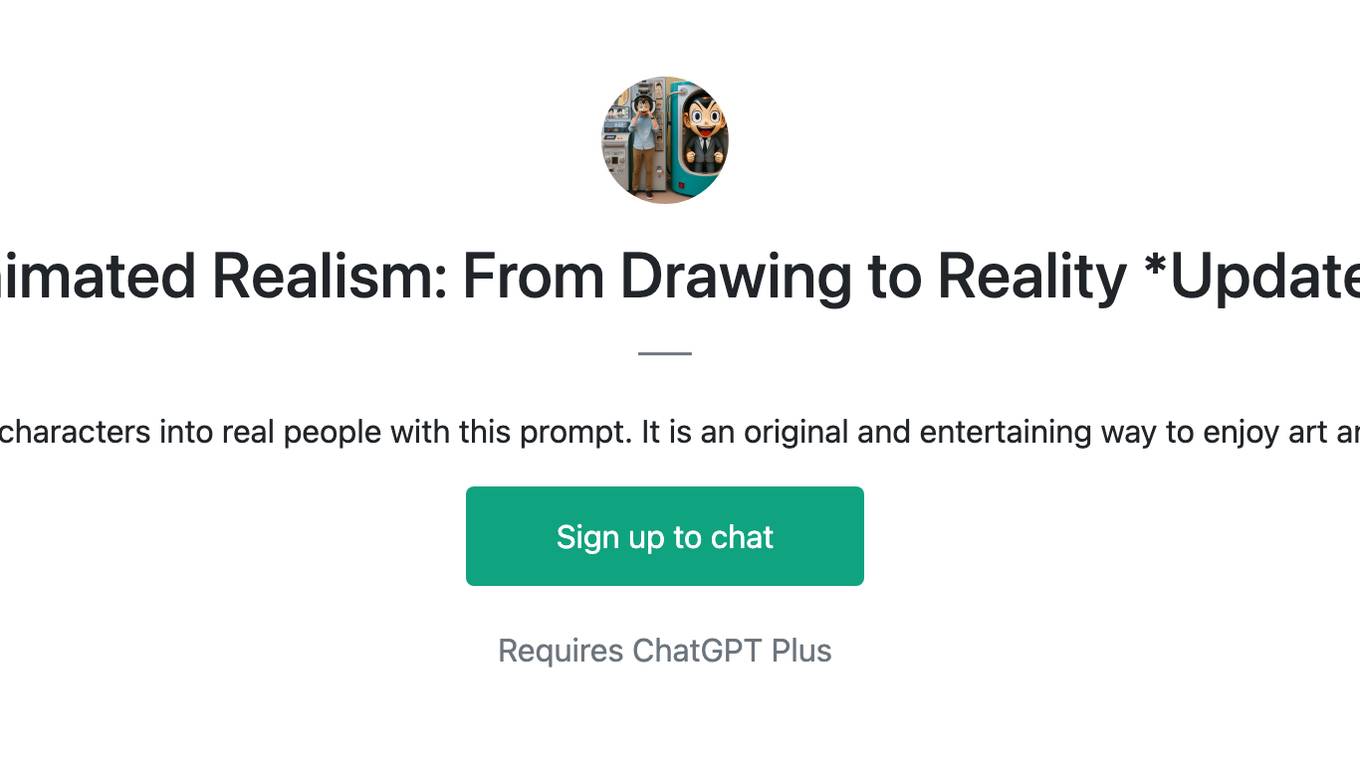
Animated Realism: From Drawing to Reality *Update*
Turn animated characters into real people with this prompt. It is an original and entertaining way to enjoy art and animation.
